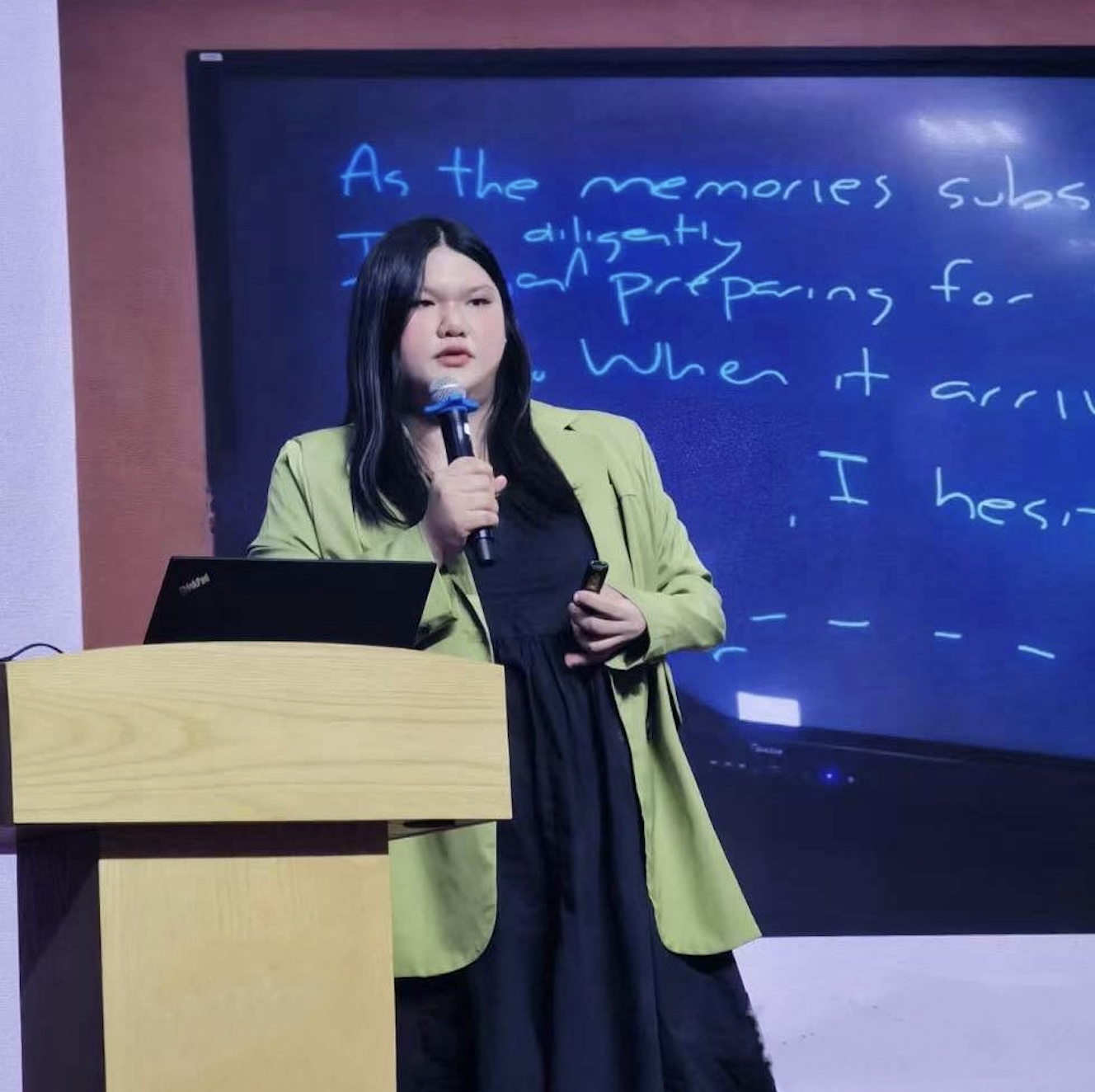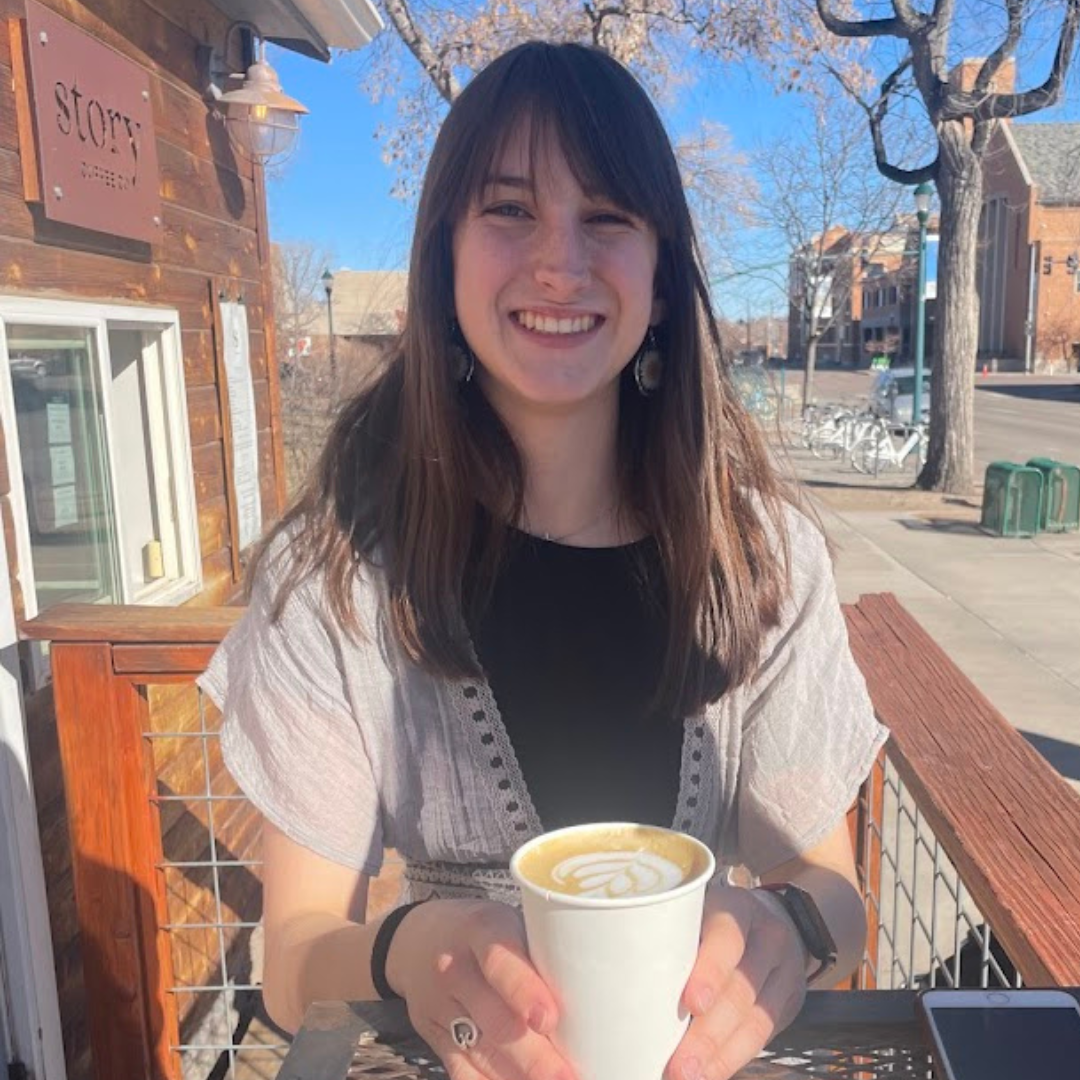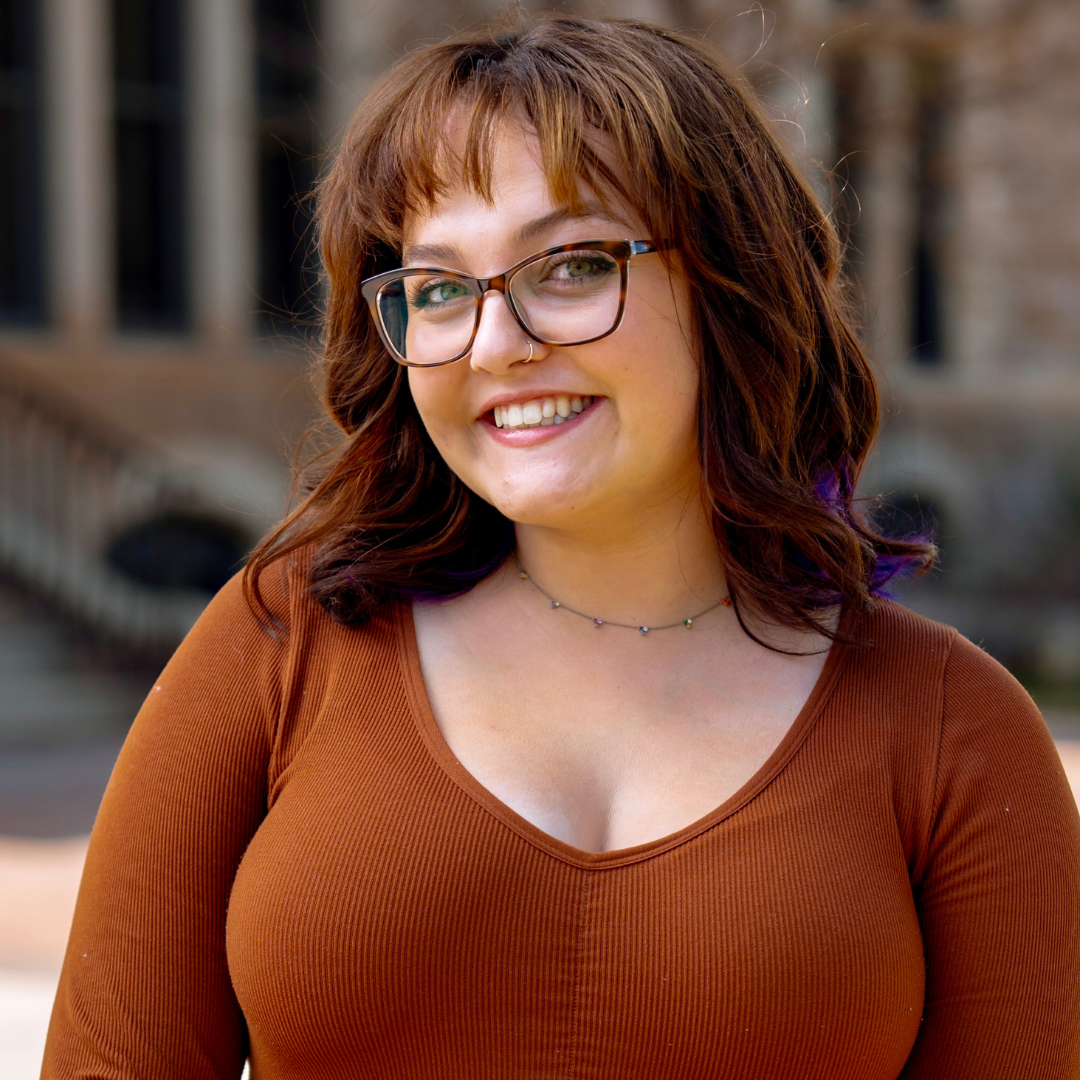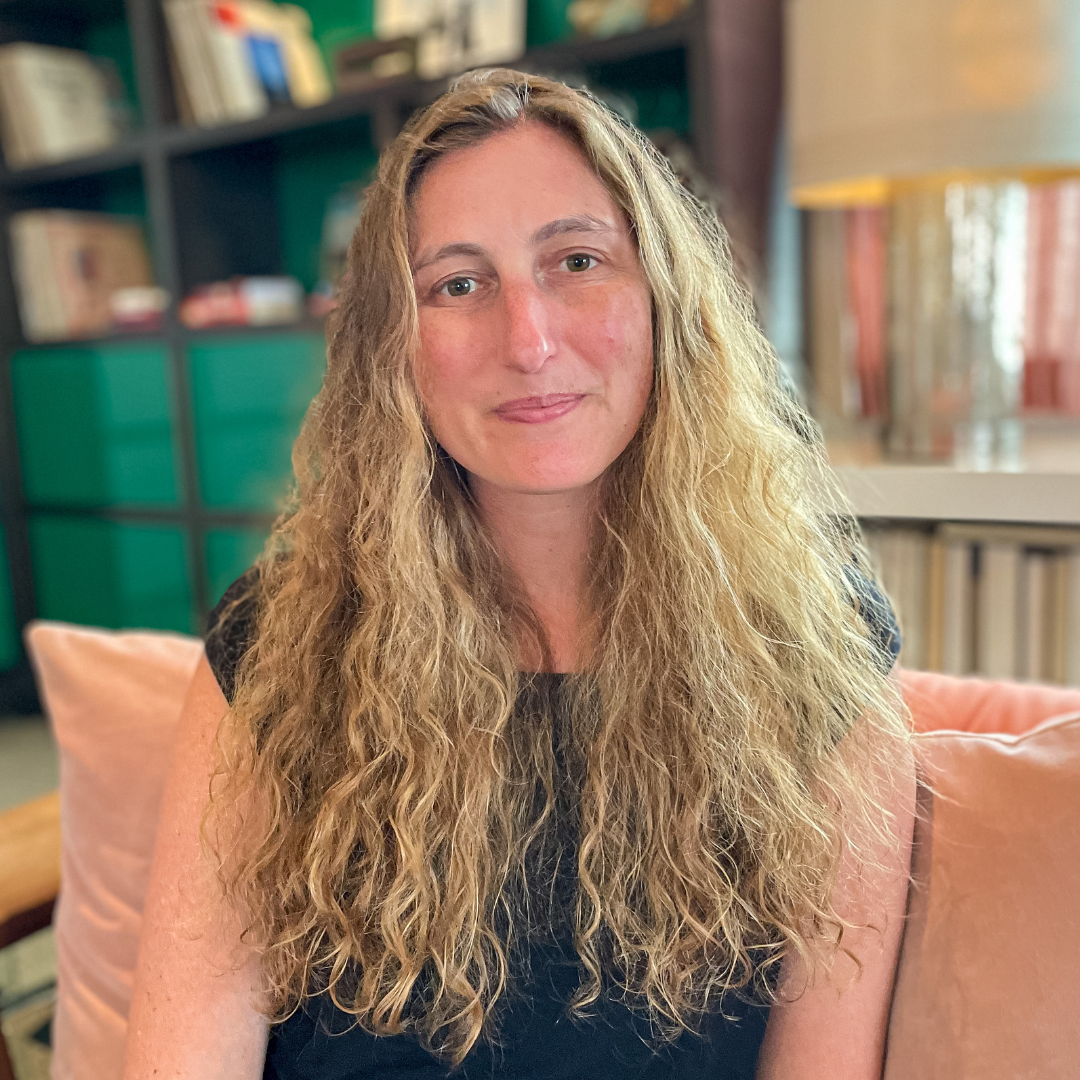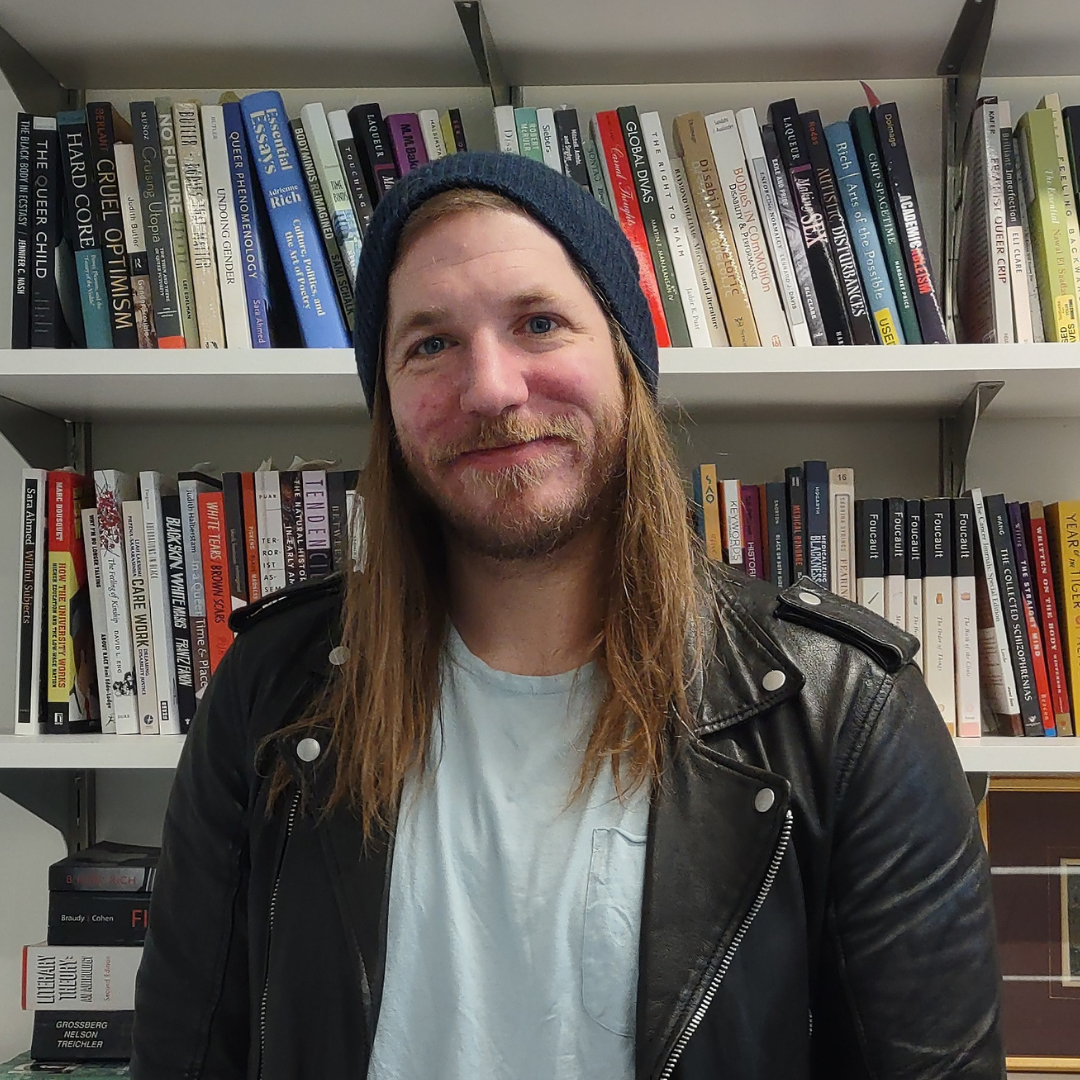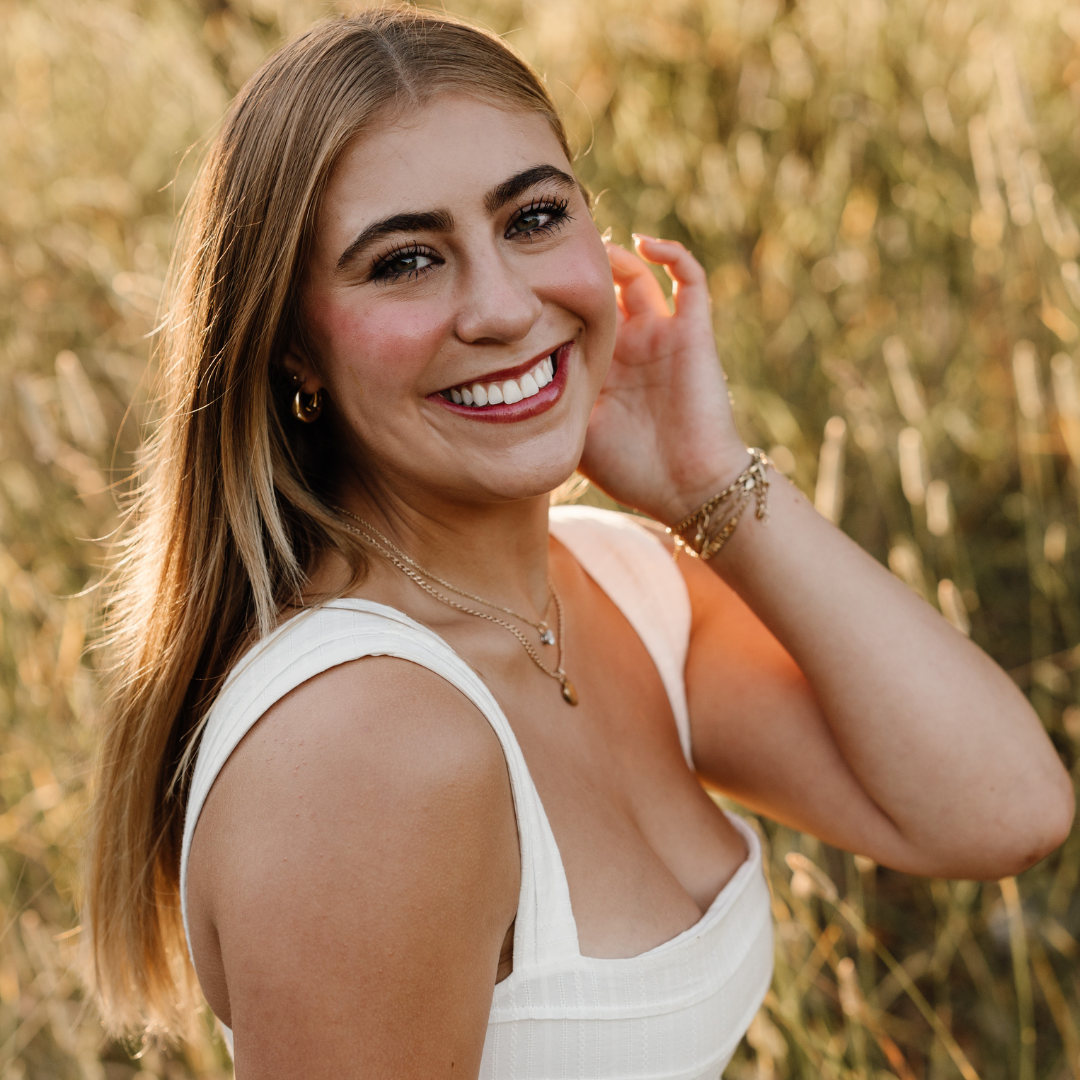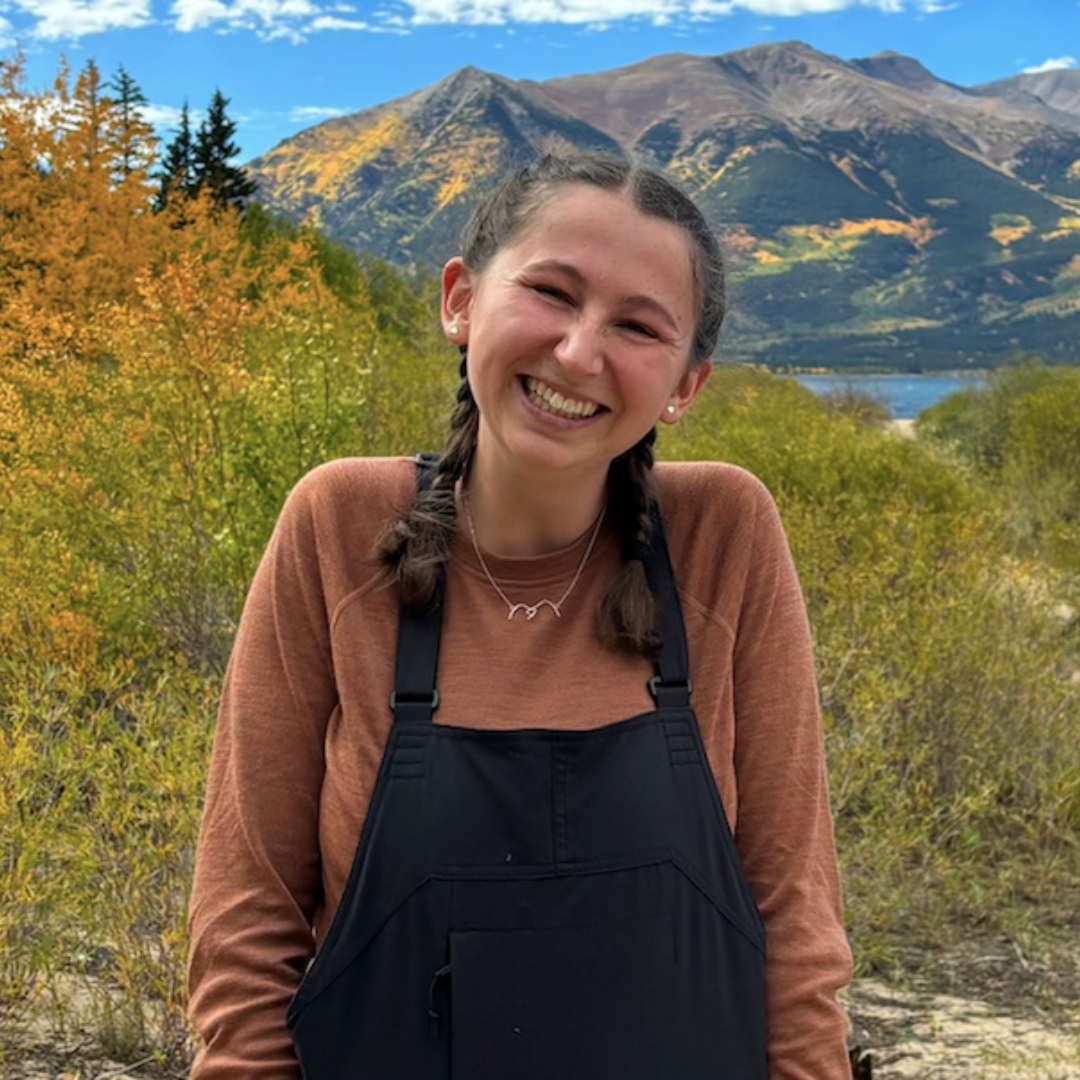
CC Bounces Back
Fear of failure, encountering hardship or facing a challenge, these are universal experiences. We worry we may not be able to cope or that asking for help will diminish other’s belief in us or our belief in ourselves. But we can’t always be perfect, we won’t always be able to do it on our own, and we may not recognize our strength and ability to bounce back when we falter.
We asked members of our campus community to share a story of an experience of failure or a challenge and how success, learning, or personal growth came through/after that failure. These stories along with data from the 2023 National College Health Assessment highlight and normalize common feelings and experiences of CC students and explore how students can recognize their internal resilience and skills to recover from challenges and combat grind culture.
This project is a collaboration between the Wellness Resource Center, Accessibility Resources and the Advising Hub.
Interested to submit your own story? Fill out the form below:
Our Stories
Strong and resilient together

Manya Whitaker, President, PHD
80% of CC students believe they lead a purposeful and meaningful life
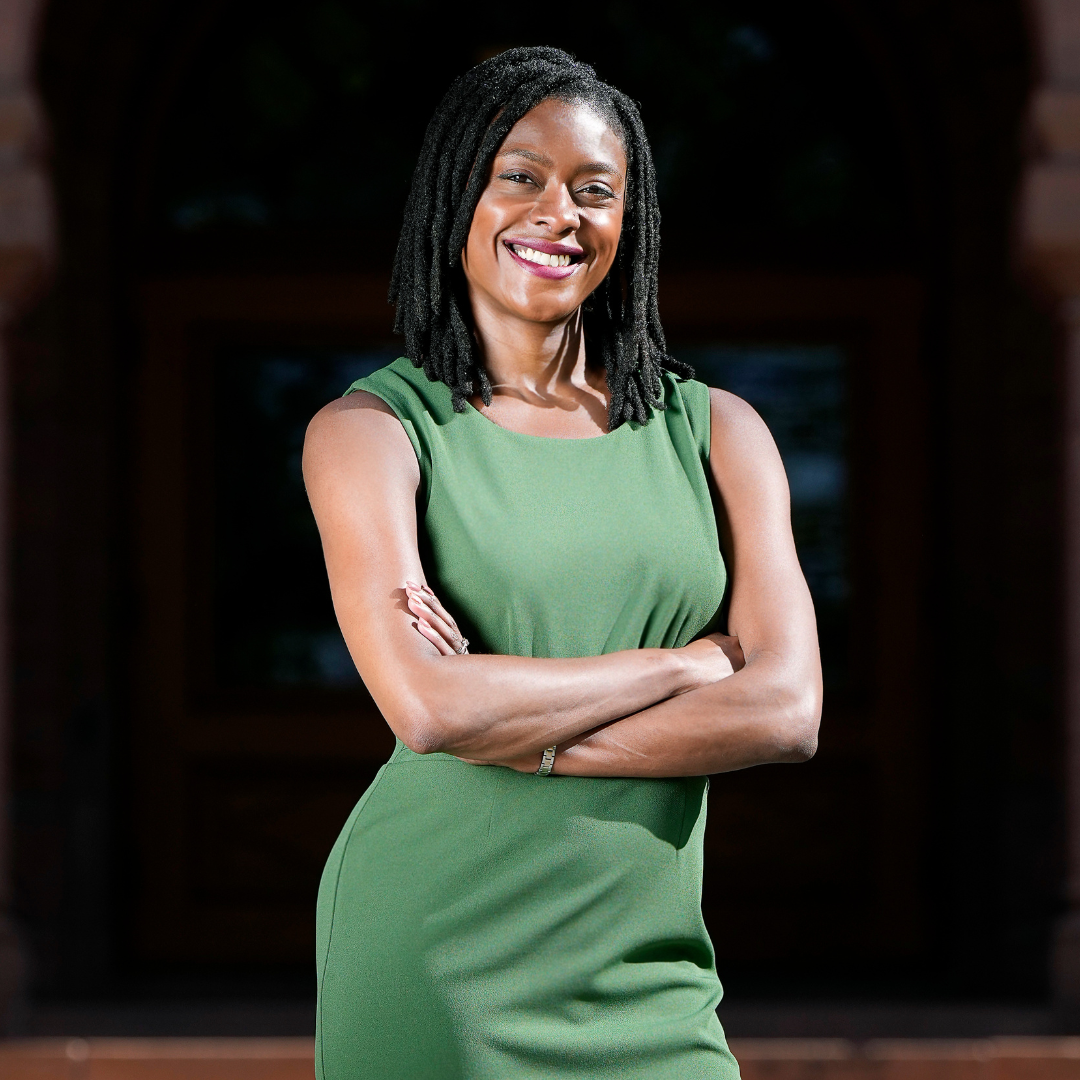
Deka Spears: Assistant Director, Butler Center
71% of CC students say they tend to bounce back after illness, injury, or other hardships
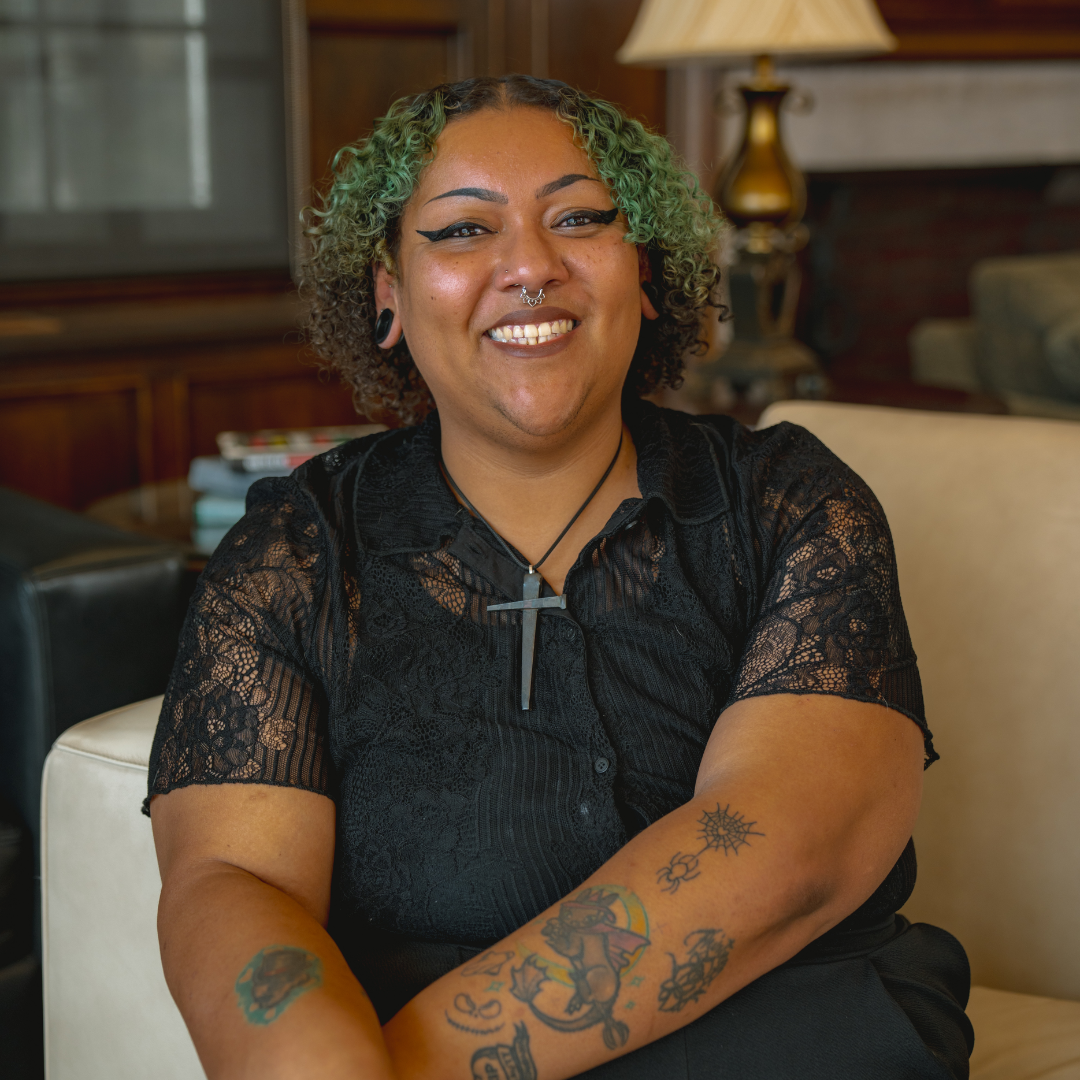 My grandparents were more like a mom and dad to me than anything else, they raised me and encouraged me to pursue higher education. Losing them felt like losing a part of myself. Through the tragedy, I still excelled in school, using academics as a distraction. Underneath that, I was struggling with depression, anxiety, suicidal ideation and more. Eventually my mental health began to impact my graduate assistantship. I knew I wasn’t meeting my full potential and wasn’t receiving the best support through everything.
My grandparents were more like a mom and dad to me than anything else, they raised me and encouraged me to pursue higher education. Losing them felt like losing a part of myself. Through the tragedy, I still excelled in school, using academics as a distraction. Underneath that, I was struggling with depression, anxiety, suicidal ideation and more. Eventually my mental health began to impact my graduate assistantship. I knew I wasn’t meeting my full potential and wasn’t receiving the best support through everything. Maybellene Gamboa: Assistant Professor, Organismal Biology & Ecology, PHD
74% of CC students agree that they are able to adapt when changes occur
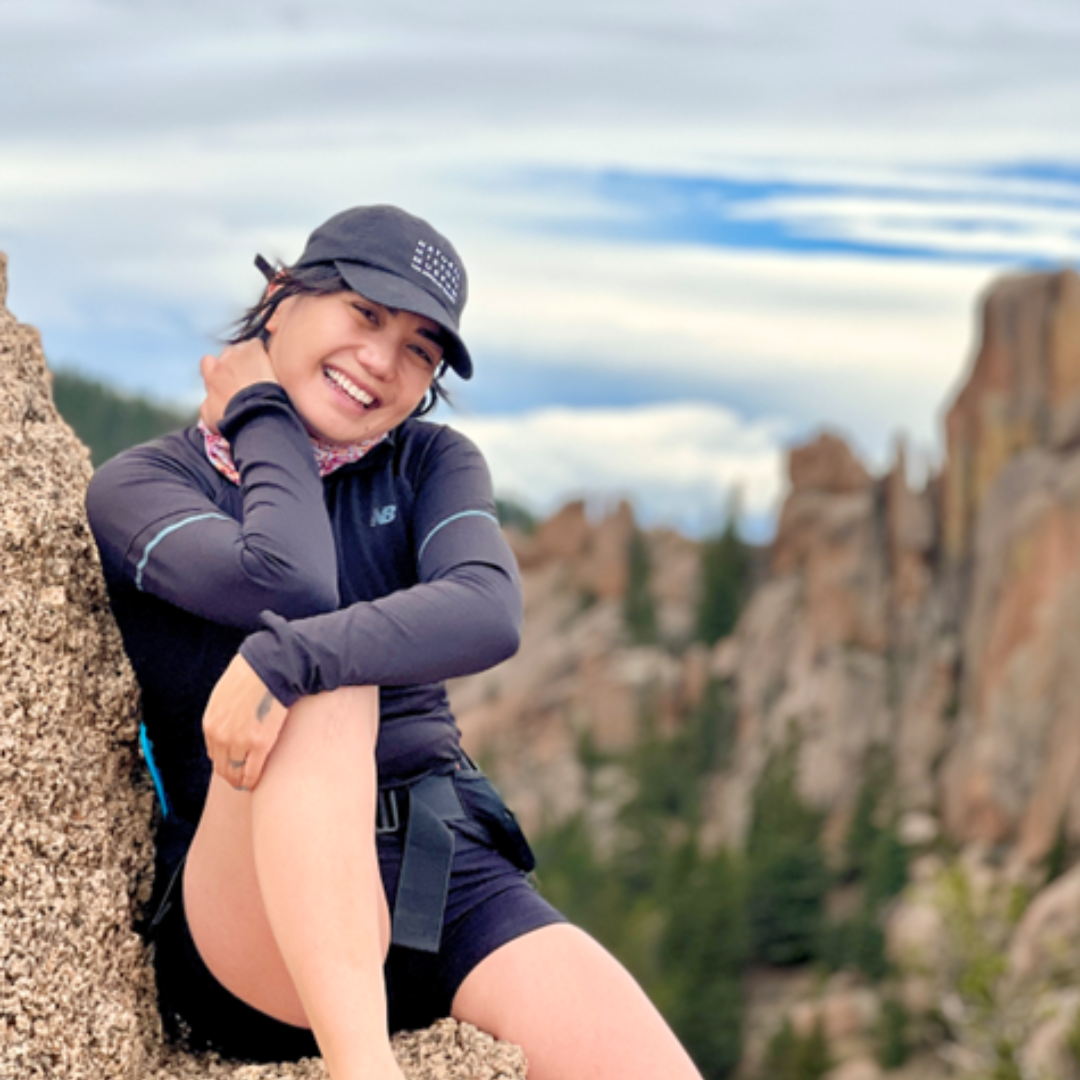
Zac Lounsbury: Assistant Director, Accessibility Resources
84% of Colorado College students would seek help from a mental health professional if they were having a personal problem that was really bothering them.
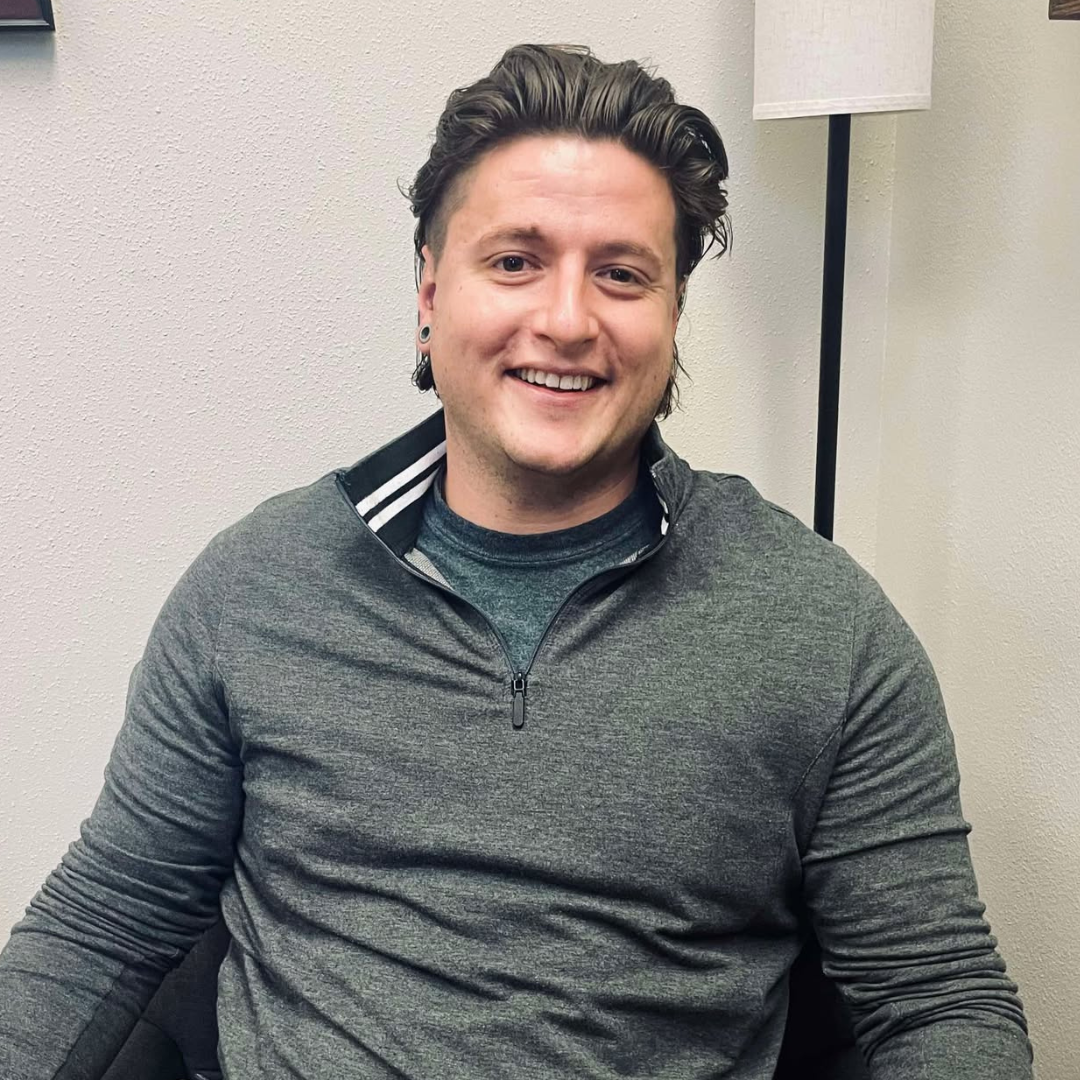 At 25, I was back in New York City training to become a teacher. One day I had to leave the classroom after nearly passing out from panic. My body swirled with nausea, cold sweat, and terror for 24 hours. I found myself standing outside of an emergency room speaking with a crisis counselor wondering if it was time to get admitted.
At 25, I was back in New York City training to become a teacher. One day I had to leave the classroom after nearly passing out from panic. My body swirled with nausea, cold sweat, and terror for 24 hours. I found myself standing outside of an emergency room speaking with a crisis counselor wondering if it was time to get admitted. Perilla Wang '28
71% of CC students say they tend to bounce back after illness, injury, or other hardships
My early life was about seeking approval. When someone praised my artwork, I immersed myself in art history, visiting museums to earn more recognition. “The Two Fridas” by Frida Kahlo inspired me. Despite the darker-skinned, fuller figure of one of the Fridas, her confident beauty radiated through time. I realized I could also be a symbol of beauty, beyond cultural standards.
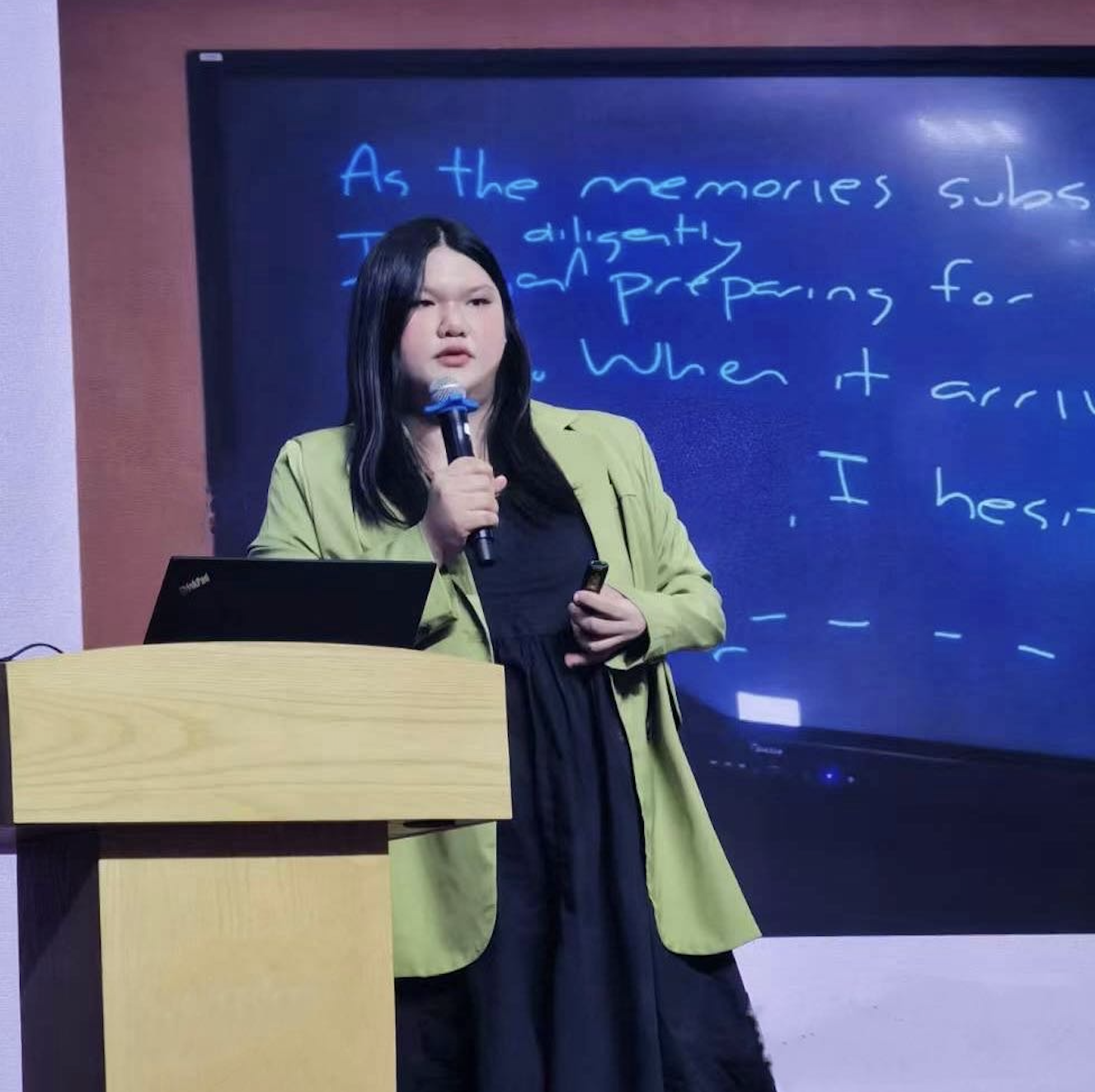
My art teacher encouraged me to volunteer, teaching drawing to local students. There, I met a thin boy with sparkling eyes, whose wrist bore shocking scars from bullying. His story reminded me of my own past, and I knew I had to act. I created a club to combat verbal bullying and raise awareness. The club aims to encourage bystanders to stand up and intervene when witnessing bullying in schools, empowering them to act and stop the bullying. I designed a computer game where players decide whether to intervene when witnessing bullying. Writing the script was emotionally difficult, but I kept going, motivated by the thought of helping others. As more people joined, the club grew stronger.
My project gained recognition and led to an invitation to the Global Finals in Boston. While preparing, I visited a clothing store and realized that beautiful dresses existed for every body type. I chose a knee-length blue-and-white dress, and when strangers admired it, I felt a shift in my confidence. I truly believed I could be a symbol of beauty.
On the day of the presentation, sunlight streamed into the auditorium as I shared my story. At the end of the presentation, an audience member came up to thank me for my story. As he turned to leave, he added, “Nice dress”
“I know it,” I replied and smiled confidently.
Gretchen Wardell: Student Success Specialist, Pre-Law Advising
89% of CC students have a strong support network.
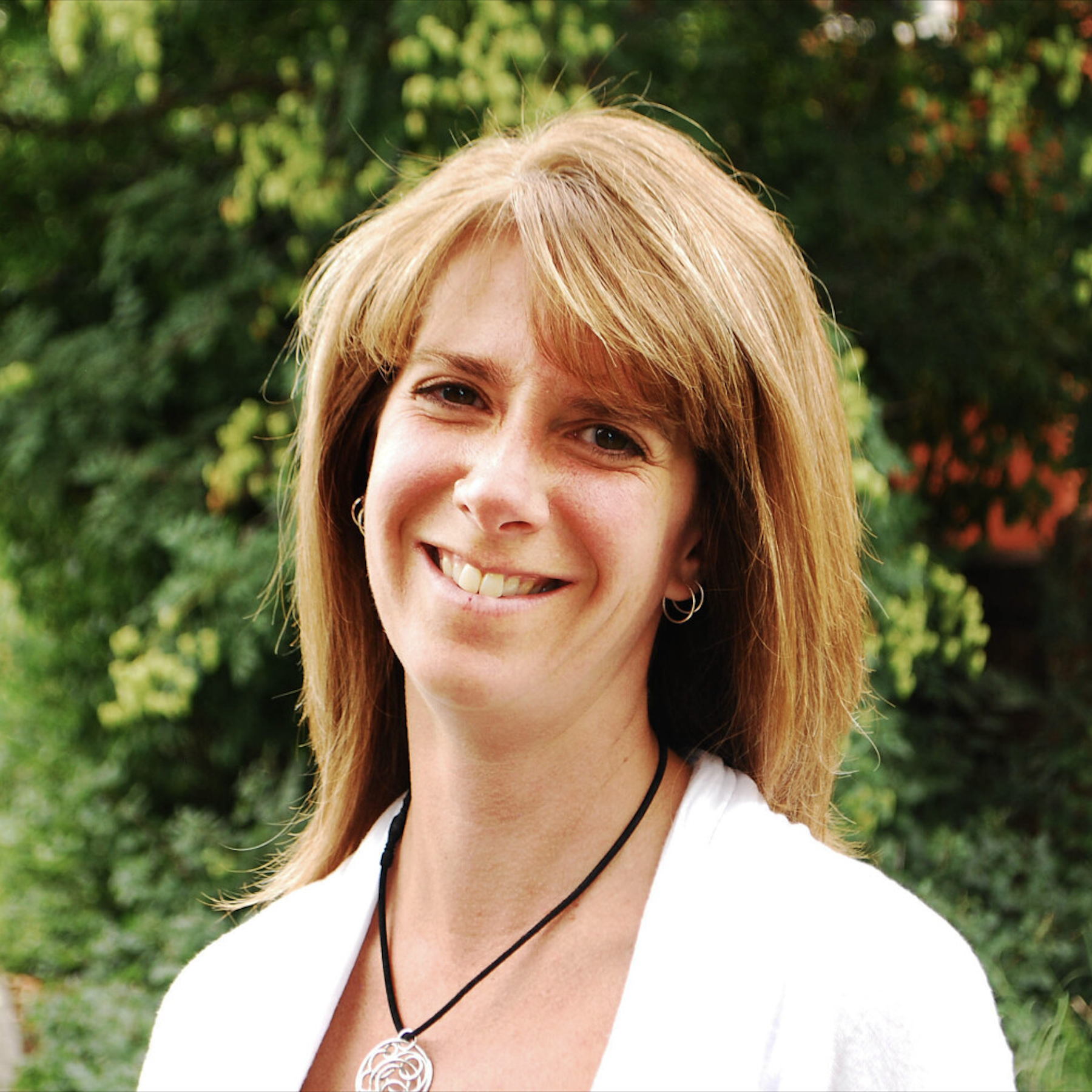
I was 16 when I had to face my first major experience with grief. My high school boyfriend had just committed suicide. I was devastated. And yet, I was the one comforting my friends. I was the one who listened, hugged, cried, and laughed with my friends. I wasn’t resentful at the time, but I was confused. And then I realized, this affected more than just me. Quite obviously, this action affected everyone. This shaped how I look at life today. Things happen to everyone and we are all tied together in this life through the good and the bad.
As life passed on, more situations arose that were lined with grief. I never hid from that, rather I talked about it. I’m open about my struggles which hopefully normalizes situations for those going through the same thing. I want to talk about the hard things. I want to offer comfort. I want to show people that they can grow with grief rather than work around it. Grief is uncomfortable but that uncomfortable is what makes you better. You can get through anything if you try.
Resiliency is hard. It’s hard when you’re in the middle of the ick. How does anyone get out of the icky situations? Positivity helps. Know that the good will happen. Tell yourself 3 things you’re grateful for every night. Those 3 things might be small but by making this a habit, you will find the great in every day. Even when grief is smacking you in the face, good happens. You have to believe that. You have to believe in yourself. You have to believe that you can learn from everything. You have to believe that things happen for a reason even if it feels like the end of the world.
Dr. Jarred Wiehe: Associate Director of Student Success
74% of CC students agree that they are able to adapt when changes occur
It’s a truism of disability studies that to live in the world means to open yourself up to the real, everyday possibility of acquiring a disability. The temporary privilege of able-bodiedness is just that—temporary. It can always change. And that’s not an apocalyptic statement asking you to be scared of disability or fear losing able-bodiedness. It’s an invitation to destigmatize disability and even value disability as a new method of making knowledge and understanding the world. 
During the last semester of my Ph.D. program, my spine gave out, and four discs threatened to sever the nerves to the lower half of my body completely--coming within millimeters of paralyzing me from the waist down. Turns out I have a congenital spinal deformity that makes my spine store compression in a scary way. (Shocker, they didn’t run tests for kids’ garbage spines in dirt rural Georgia in the 90s).
That semester, I finished my dissertation by putting my newly disabled body in new positions. I wrote on my back on my couch. I graded on the floor on a yoga mat flat on my stomach like an infant during “tummy time.” I advocated for the department getting me a standing desk. I bedazzled my back brace to still be a fashion icon on campus. When the chronic pain flared up, I rested. And I got my Ph.D.
So, here’s what disability taught me: slow down; listen to your body’s needs; adapt to find it comfort; and know through your disability. By “know through,” I mean embracing the new ways of seeing and feeling the world that disability opens up. For instance, I was able to share some new research at the Modern Language Association (MLA) in 2023 on crip-queer critique, playable crip epistemologies, and Hideo Kojima’s game, Death Stranding (2019). I came to the insights in that paper because I felt Kojima’s videogame differently. I can’t sit a lot, so being conscientious of my core muscles and pain levels while balancing on an exercise ball and loading up Norman Reedus’ virtual body with an ungodly amount of cargo while he grunts made me go, “Oh, wait, I think this game knows something cool about disability, extractive productivity, radical interdependence, and late-stage capitalism…” I know something new because of my disability.
As you and your CC peers bounce back after illness, injury, or other hardships, take seriously the new things you’ll learn and make use of them in your intellectual pursuits at CC. Exciting, new lines of inquiry will open up as you make knowledge through your illness, injury, or disability.
Ella Schuchard '27
86% of CC students feel they are competent and capable in the activities that are important to them
I came into my freshman year of college fully expecting it to be one of the best years of my life. I imagined spontaneous adventures every weekend and just the right amount of academic challenge to keep things interesting. What I didn’t anticipate was feeling completely alone at times and questioning whether I was even cut out for this. Freshman year wasn’t just difficult, it completely upended my sense of self.
I had always found comfort in academic validation throughout high school: if nothing else, I could always rely on my teachers to boost my ego and my GPA to make me feel like I had things under control. But when my personal life and things back at home started to unravel, so did my ability to focus. My mental health plummeted, and I felt stuck in one of the darkest places of my life. To make matters worse, it seemed like everyone around me was thriving, effortlessly making friends and adjusting to college like it was no big deal. Meanwhile, I was contemplating whether I could survive off microwave popcorn because the idea of walking into Rasty’s alone felt unbearable.
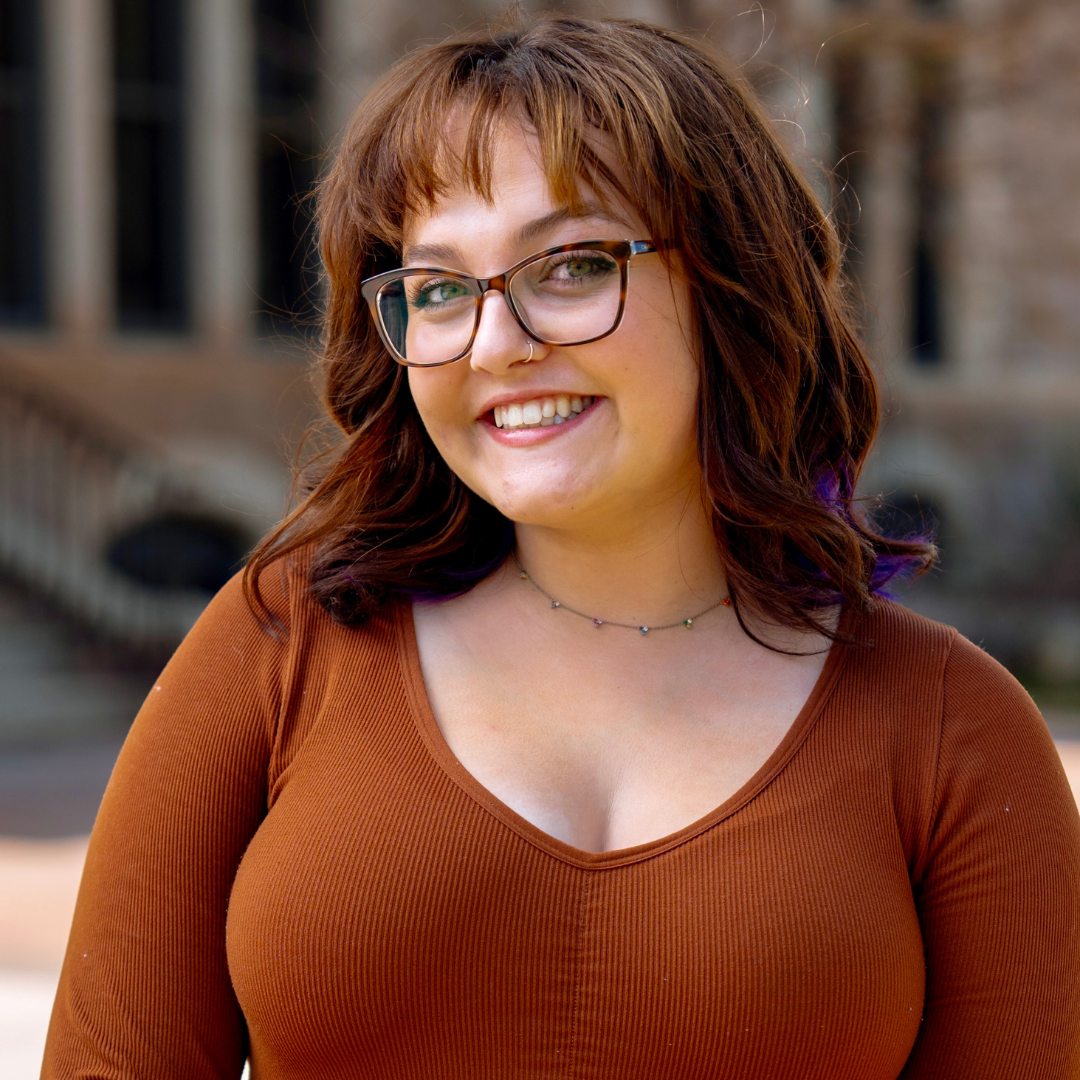 The turning point came when I realized that I didn’t have to go through it alone. There werepeople who wanted to help me. I reached out to the health center and started using my freetherapy sessions. Eventually, I got connected with a local therapist who was only a 15 minute walk from campus. She truly helped me work through everything I was feeling. And as I slowly started to process things, I found myself opening up to people around me. I built real friendships, ones that made me feel supported and understood. I finally found my community.
The turning point came when I realized that I didn’t have to go through it alone. There werepeople who wanted to help me. I reached out to the health center and started using my freetherapy sessions. Eventually, I got connected with a local therapist who was only a 15 minute walk from campus. She truly helped me work through everything I was feeling. And as I slowly started to process things, I found myself opening up to people around me. I built real friendships, ones that made me feel supported and understood. I finally found my community.
Fast forward to now: I’m doing so much better. Somehow, I’ve gone from feeling completely and utterly lost to being a co-head of the Llamapalooza Music Festival, a co-chair for the Bridge Scholars Program, and deeply involved in campus life. I won’t lie to you, college is still nothing like a coming-of-age movie. Between being a STEM major and five on-campus jobs, free time is definitely a foreign concept. But I’ve realized that joy doesn’t have to come in grand, cinematic moments. It’s in the small things, and there’s always time for friendship and late-night laughs.
If I could go back and talk to my freshman-year self, I’d tell her this: it gets better. As cliche as it sounds, it really does. Even when it feels like everything is falling apart, there is always a way through. Adjusting to college is SO HARD, and it’s easy to convince yourself that you’re the only one struggling. But the truth is, everyone has their moments, some people are just better at hiding it. Finding your place takes time, and that’s okay. Keep going. I promise, you’re stronger than you think.
Emily Bennett '26
89% of CC students have a strong support network
Everyone told me that Orgo was going to be hard. Boy, were they right! Orgo 1 was difficult- but Orgo 2 seemed impossible. I knew how much mindset played a role in how hard I was going to work for a class, so I was determined to enjoy it. First week finished and it was time for Exam 1. I felt prepared, I had done all I could do. I got my test back, handed to me taco style so no one could peek…my heart fell to the floor. The number- 66.67% was blazed into the back of my eyelids. The lowest score I’ve ever had on a test, which I realize is not a universal experience- but failure in some way is. My stomach churned and I could only cry.
I was crushed. I didn’t know what else to do. I dried my tears as best I could and called my mom- my anchor,pulling me back in when I have spiraled out, putting things into words that I didn’t even know I was feeling, showing me unconditional love and putting life into perspective. She talked with me and prayed with me, telling me that it was going to be okay. I felt more at peace, but not 100%. 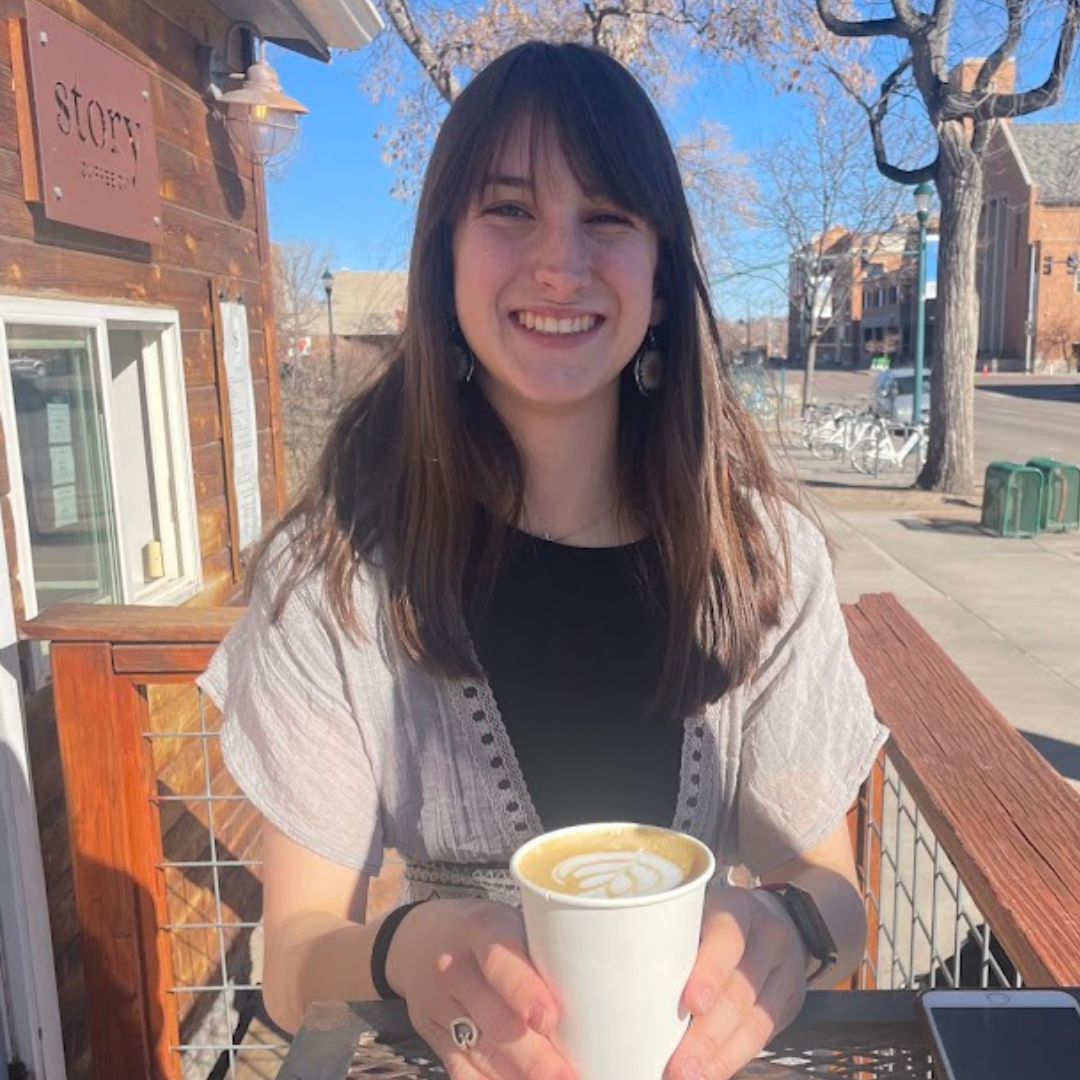
When I got the inevitable email from my professor asking to discuss my exam, I was disappointed in myself. I felt I should have done better. But she helped me realize that this score meant I knew two thirds of the content. She also had a tissue box ready. My lab professor helped me realize that not everyone gets everything correct on their first try. Fast forward to a few weeks later, as I was studying in the library, my friends made me a care package- complete with C store snacks, squishies, and encouraging notes- that brought me to tears. I felt like my effort hadn’t helped me much with scores, but they showed me that it didn’t matter to them! The next week, 4th Tuesday, was my birthday. My friends threw me a surprise party in the library before class and brought coffee cake to celebrate. I again was at a loss for words and only could thank them so very much.
I felt loved despite not being able to give much love to myself.
Then the final came. I vividly remember waking up and the sun not being up, but the sky was light. I groaned. I got ready, made coffee, prayed, opened my computer and was intent on studying before class. However, I was simply frozen in fear. I called my mom, literally bawling. She asked me what I was afraid of, after all it was just a test, and I thought for a moment and said, quietly, “failing”. She asked, “what happens if you fail this class?” Honestly, I got a little offended because in my mind, that simply wasn’t an option. No kids raised in the HGT (Highly Gifted) program could fail a class- it didn’t matter how hard it was. I said, “Well, I guess I'll take it again” right there, part of me sighed in relief. This wasn’t actually the end of the world like my brain was telling me. Feeling slightly more collected, I walked over to class… my heart pounded, my eyes welled with tears, my muscles quivered, and I literally could not make it across the quad. I stopped by a tree, holding on and practiced square breathing as best I could. My mom was in my ear- talking to me, telling me that it was just a test, and I was going to be okay. As the clock ticked closer to nine, I knew I had to make myself get into class. My mom promised that it was going to be okay and that everyone would still love me no matter what happened on this test. I thanked her, marched over to class, bright red eyes and cheeks and all.
Orgo 2 still stands to be the hardest class I’ve ever taken, but without people around me cheering me on I would have never finished it. It is thanks to everyone- friends, family, God, professors, classmates- around me who pushed me to keep going when I felt I had nothing left to give. Don’t let yourself be bullied by yourself into feeling you must be alone. There is someone out there, even if you don’t know it, who is rooting for you, just as you are.
Cassidy Craige '25
89% of CC students have a strong support network
It’s okay to be nervous. Someone I met on the first day of college knows I get anxious taking tests and she texts me every morning before an exam telling me “you got this”.
It’s okay to be vulnerable. One of my best friends knew something was bothering me. She was right. She somehow always knows if there is something on my mind. We plopped ourselves on the couch with cups of ginger tea and she held space for me like nobody ever has done for me before.
It’s okay to ask for help. I lost a close friend my Junior year of high school. A co-worker (and now friend) wrote me a 3-page letter explaining how she is there for me in a way that she wished someone was there for her when she lived through the same thing. “Call me anytime, even if it is 3 am.”
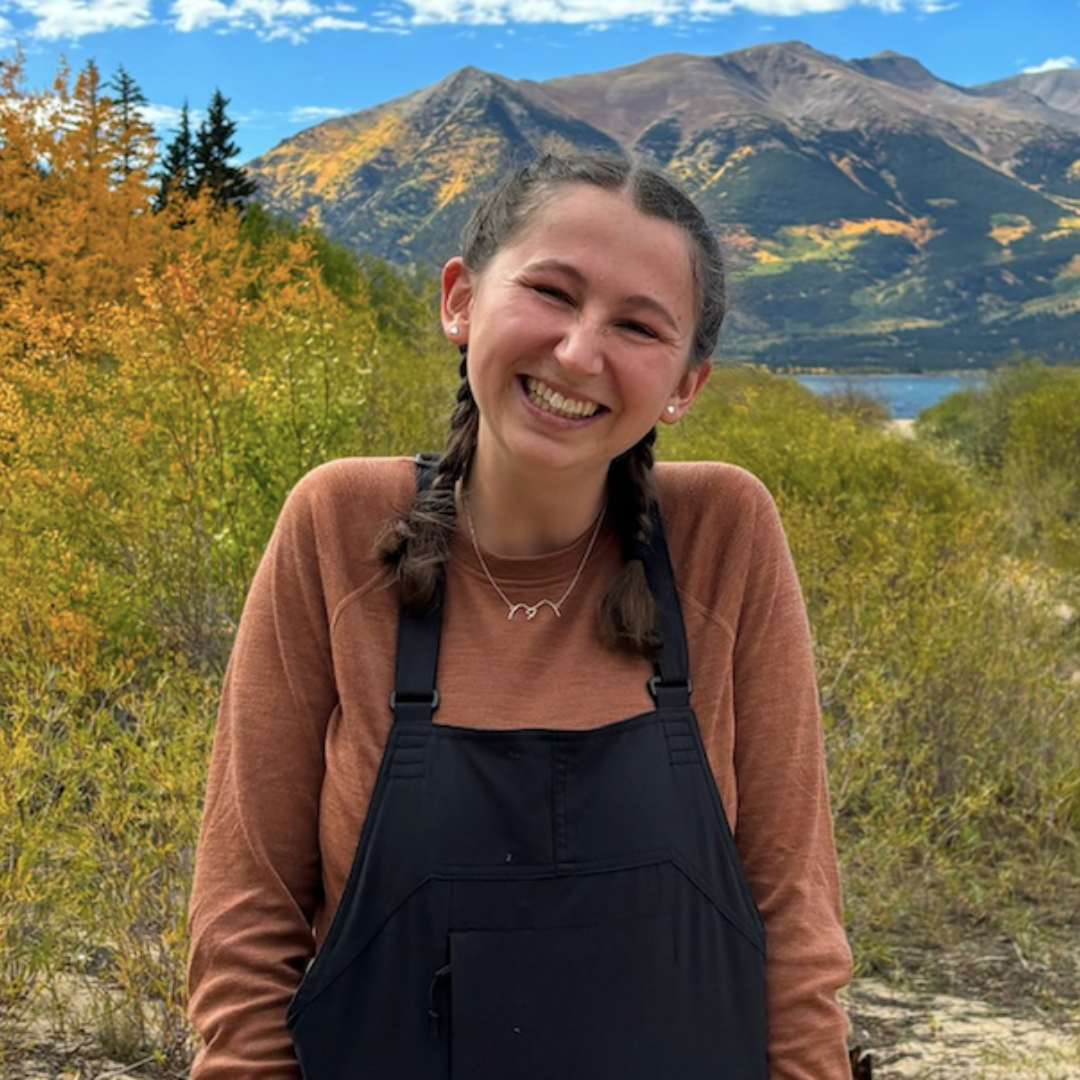 It’s okay to be scared. The first class I took for my major sent me into a sea of overwhelm. I was still new to the block plan and thinking about EVERYTHING that had to get done in 3 ½ weeks was daunting. Every day after class, I called my mom and took a walk down my favorite street near campus. She helped me be present in the moment and she taught me that I can only take things one at a time, one day at a time.
It’s okay to be scared. The first class I took for my major sent me into a sea of overwhelm. I was still new to the block plan and thinking about EVERYTHING that had to get done in 3 ½ weeks was daunting. Every day after class, I called my mom and took a walk down my favorite street near campus. She helped me be present in the moment and she taught me that I can only take things one at a time, one day at a time.
It’s okay to have nerves. I worked over a winter season studying for my Adaptive Cognitive and Visual Impairment alpine ski exam. After work, my co-workers and I would have “silly rowdy study sessions” to lessen the intimidation of the daunting exam to come. We were all in it together. We quizzed each other with flashcards sitting on the floor of the locker room, gave each other mock teaching scenarios, and on the day of the exam, we all cheered each other on as we were handed our pins and certificates.
It’s okay to cry. The 4th Block of sophomore year was tough on levels I didn’t know existed. Let me paint the picture: I hit a deer driving back to school from Thanksgiving break, my bank accounts were hacked the next day, my email was leaked somewhere and I was now subscribed to 500 random spam lists, I was in a second car accident, and to top it all off, my class was downright kicking my butt. I felt so defeated and the “end” of it all seemed non-existent. Invisible, even. My roommates made sure I was fed, taking care of myself, and they gave me shoulders to cry on. My roommate’s mom even wrote me a letter expressing her love and support. They built up my resilience.
It’s okay to have your own path. Due to credits from high school, I am graduating from CC a year early. As excited as I am for the upcoming chapters in my life, it is really hard to think about leaving my friends who I began this journey with as freshman. It feels weird to be going separate ways. These people. The people I have known since the days in our freshman dorm. The people who became best friends. The people who played paddle pirates on our Priddy Trip. The people who I thought would be disappointed that I wasn’t going to close this chapter with them have been nothing but supportive of my decision.
Whether it be a tough class, a personal challenge, or just a really bumpy road, there is always someone there. There is always something there to help. It may seem invisible sometimes, but it’s here, I promise.
Rebecca Parker: Arts & Crafts Director
89% of CC students have a strong support network
School was hard for me from the start. I didn’t learn to read until I was in 3rd grade. Math was impossible, memorizing history, or spelling took hours, and tests just further confirmed that I wasn’t getting it. For me that translated to not being smart. In a time where my confidence could have taken an impossible turn, it didn’t because I was lucky to be raised in a house of teachers. My mom noticed that I was an experiential learner, and she spent hours with me after school writing my spelling words in shaving cream on the driveway so I would remember the texture or matching my dance moves to multiplication tables. Even with her brilliant guidance for a long time, this struggle felt insurmountable. 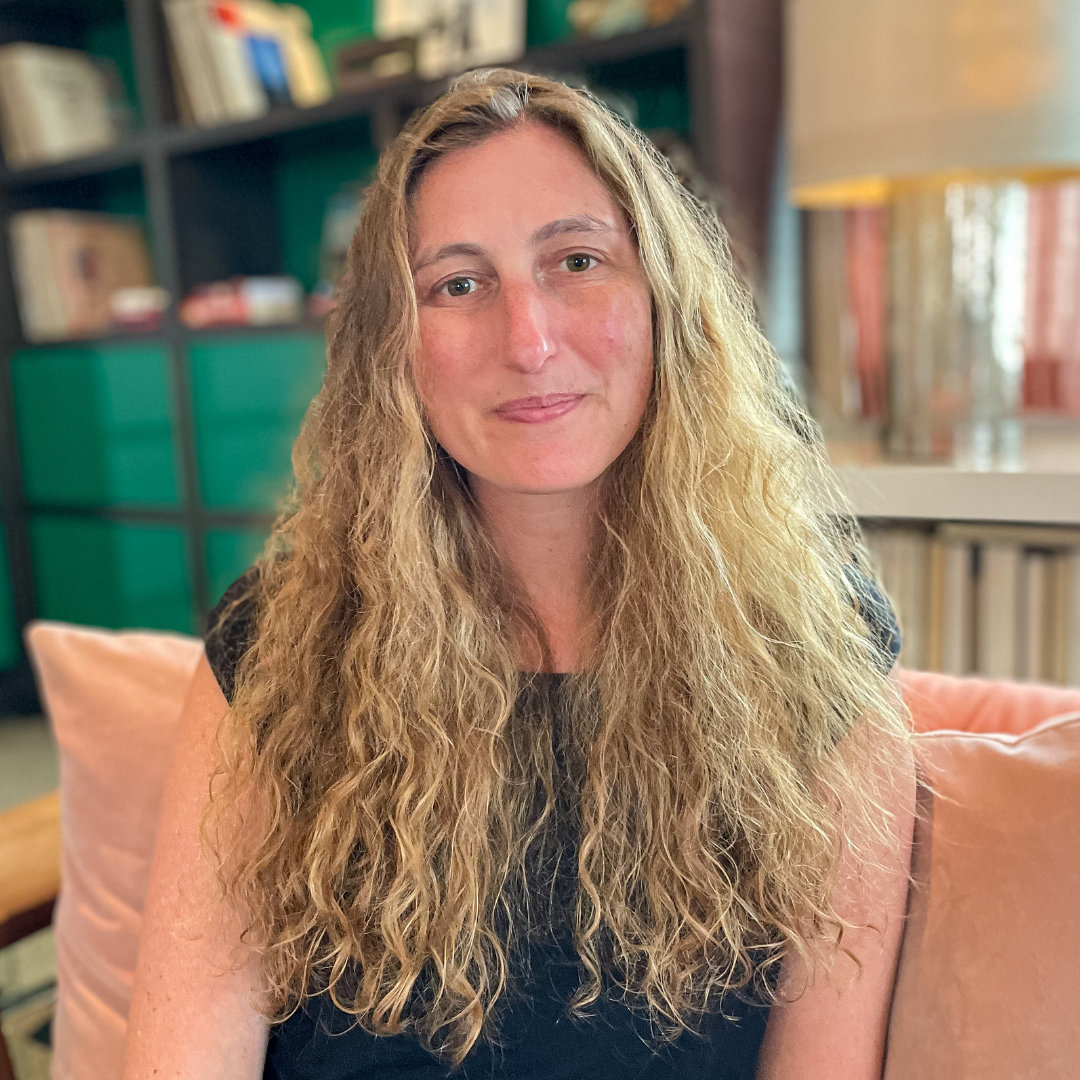
The thing that I didn’t realize until much later is that I was an artist, and the ways I engage with the world are different. And although my family was not made up of artists, they are each creative in their own way and they understood how to support me. The first time I went to a museum was the first time my parents went to a museum. My mom was the one to encourage me to major in art. And my entire family has taken part in many of my performance art pieces. My family has always been along for the journey. I share all of this because I learned early on that failure, experimentation, risk-taking, and vulnerability would always be a part of my path as a learner. I did not know how well these qualities would serve me as an artist.
When I found my way to art, I also discovered the incredible way in which creatives support each other—it makes risk taking easier. In college I took the biggest risk and decided to commit to studying art, and I think more importantly making art the center of my life. It is also during this time that I found my first artist community. I met a group of friends who were artists, writers, and musicians who taught me what living the creative process looked like.
Throughout my undergrad and grad school experience I became quite comfortable with trying something new and failing. It’s part of the process so that you can find the form for your expression. And it wasn’t until I found ceramics and then later performance art that I found my footing. It was through this experimentation that I started to trust the process and understand that showing up to the studio and making something even if it wasn’t good was moving me forward. In one of my early performances in grad school I had spent months developing the idea, researching, and then creating this large-scale installation. It was a personal piece, and I was nervous and excited to perform it for my faculty and peers. After the performance, in a tough critique I realized that it hadn’t communicated anything I had hoped. In that moment, those same feelings I felt as a kid came back, but this time it was my art family that offered support and perspective.
Artists need each other.
My struggle in education sparked an interest in creating spaces in which you can truly love to learn. And over the last several years, I’ve let go of some personal art making because the joy I find in creating and supporting spaces for others to make art is so fulfilling. I’ve been fortunate to be a part of many caring and generous artist communities and have learned that vulnerability can lead to transformation, experimentation is necessary, and that when you have the right support risks don’t feel so large. It is in artists' communities that I thrive; I can be myself and feel supported enough to fail.
My deep love that I found for art and artist communities continues here at CC. Every day I get to make art with you, support your creativity, and challenge you to take a leap and try something new.
Ben Ruddock ‘26
86% of CC students feel they are competent and capable in the activities that are important to them
When applying to CC and learning about the block plan, I understood that this unique education format was created to promote balance between academics and extracurricular life, unlike what I was familiar with. By having class for 3 hours a day, students were expected to use their free time to engage in extracurricular activities, build their lives outside of academics, and spend time in the outdoors. However, I noticed that this promoted student life did not include time for paid work; therefore, for the most part, this advertised student life became out of reach for me.
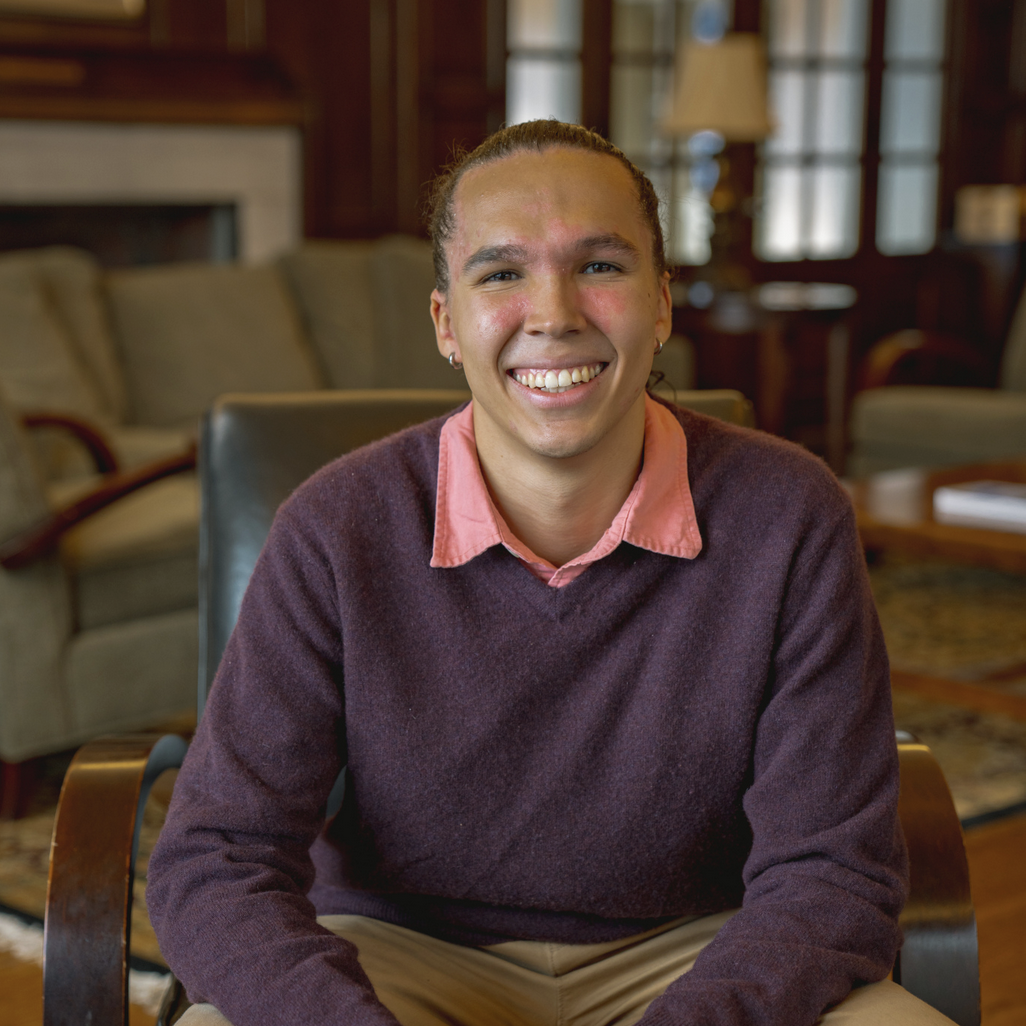
Working 3 jobs in my first year at CC made me face the reality that my time is much more restricted by the financial responsibility of working to pay for my education. Working 20 hours a week on the block plan has not just limited my ability to engage in activities that were promoted as the college student experience, but the time I was able to spend on my academic development was also constrained because of the amount of time I needed to dedicate to my work. I often could not attend office hours, connect with departments intended to help prepare me for my future career or merely take a break to avoid experiencing burnout.
Nevertheless, from interactions I have had with friends, family, and advisors, I have recognized that my experience has not been to my detriment. While it has been a stark contrast from what I expected in terms of the extracurricular activities I would have, and the capacity of my schedule has not met the standards I expected, I have experienced immense growth from the challenges I have been confronted with. I have developed time management skills, as well as 3 years of work experience, allowing me to have varied experiences to add to my resume once I finish my time in higher education. Furthermore, I have proven to myself what I am capable of. I can do much more than I ever imagined possible; each semester, I seem to take on more and more and persist to prove what I can do. The immense support I have received, especially from everyone in the Butler Center, my friends on campus, and my family back home, has empowered me to reach my full potential. But none of it would have been possible without the community support I received; repeatedly, when I reached out for help, I was welcomed with open arms. I have a forever grateful for the opportunities and challenges I have received, as it has helped me achieve so much more than I could have anticipated from the start of my time at CC.
Hunter Markowich ‘25
71% of CC students say they tend to bounce back after illness, injury, or other hardship.
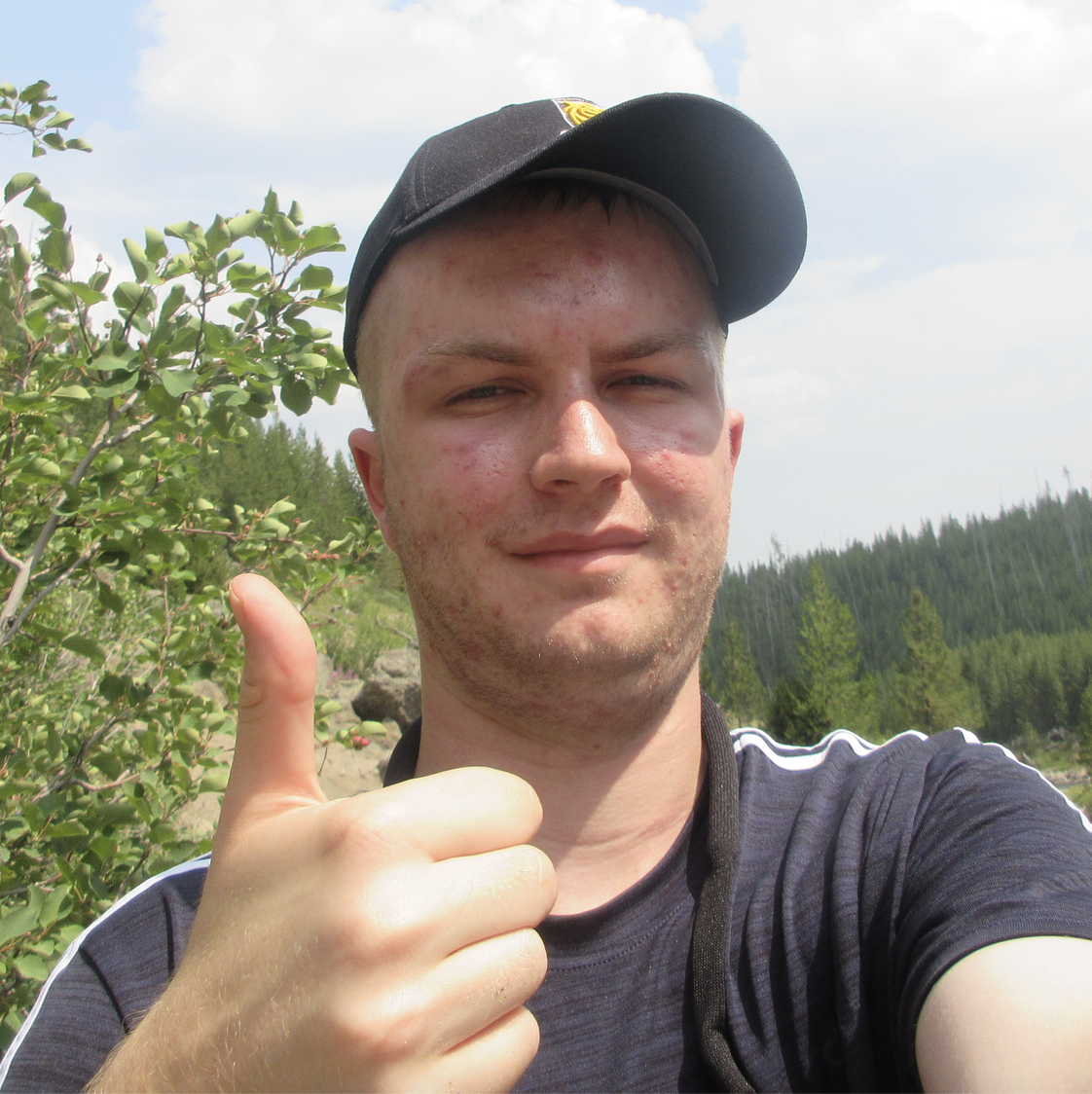
Over my time at Colorado College, I have experienced hardships in different forms, including all three components of the statistic listed above.
I bounced back after illness. Specifically, I got COVID-19 during my FYP class in the Southwest Studies department in Fall 2022 at the later end of the peak of the pandemic. Unfortunately, I missed an entire week of the first block. Still, I feel like I bounced back from this illness. I ended up getting a surprising B+ in the class, much higher than I had assumed given my extended COVID-19 illness.
I bounced back after injury. Specifically, I had to take two blocks off for two separate surgeries that needed to be done on me. While this ended up moving my schedule around a lot during Fall 2024, I felt a balance of accountability and accessibility while bouncing back. I had to switch my schedule around but had the flexibility of taking these two blocks off rather than an entire semester, which I would've had to do at other institutions not on the Block Plan.
I bounced back after hardship. This past semester, my father started a procedure known as dialysis to help with his kidney disease. He's had a problem with his kidneys for ten years or longer, but he's been struggling lately with his worsening health. However, by knowing that he has been in good hands at the doctor's office and everywhere else he's visited, I have bounced back. Also, it’s helped knowing that he'll see me after I graduate this summer, along with the rest of my family in Florida (where I'm from).
These three examples have taught me that the college experience is not always linear (math major here!), but they're more defined by the imperfections that happen along the way. I've had these imperfections during my time at CC, but I feel like I've been supported along the way by the resources able to help me thrive here, including writing this message to you all!
Hope Shea ‘26
94% of CC students have a strong support network
When I was touring undergraduate institutions, I distinctly remember my sister sternly telling me, “Don’t follow me to college.” I wouldn’t exactly say we were close in high school, but I can understand how attending the same academy, being debate partners, and living together can push someone to look forward to branching out in college. I too wanted to get away from her and my family; my original plan was to attend a large state school in California. But distance, as it so often does, ended up working its magic, and after her first semester away at Colorado College my sister came home for fall break and said, “Hope, I think you should seriously consider applying to CC.” The rest is history.
I think my network at CC is strong not just because my family went here, but because we are not a rare example of familial attachment at CC. So many of my friends have siblings or parents that are alums, which I think helps make CC such an interconnected, supportive community. There were so many times when I needed help from my support system, such as math help with my economics homework or directions to a place on campus I had never been to before. I think having people I could rely on for those seemingly mundane and small challenges helped me to focus on bigger first-year problems, which I think in turn aided my adjustment to college life.
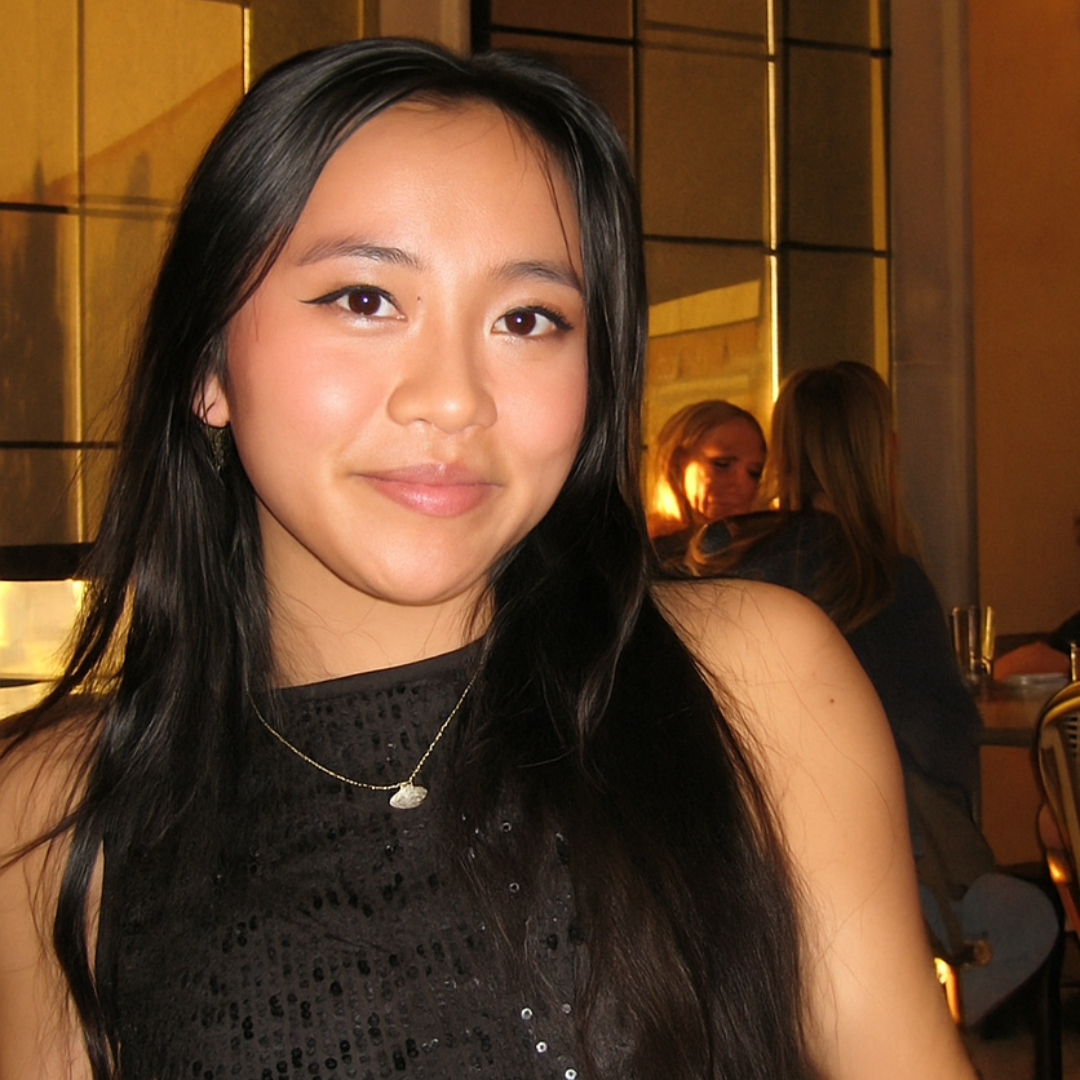 While the pre-existing network I had played a part in my coming to CC, it is the community I made and found for myself that kept me here. At CC, I have been connected to amazing friends – most of whom I met during my first year – that I maintain strong relationships with years after they’ve already graduated. While there’s too many examples of how my friends have helped me to count, I do have some favorite memories. I loved being driven around town in my friend’s convertible with music blasting as we cried over our hard blocks and failing relationships. I loved going camping with friends and meeting new people, getting scared of bears, and creating a new playlist that’s perfect for when you get lost in the woods. I’m grateful for my friends who bought bouquets and sat with me in the hospital while my dad was admitted for a month. These random experiences compounded with extracurricular decisions like joining a sorority and being mentored by alumni have all helped me to realize that my network is even bigger and stronger than I thought it was.
While the pre-existing network I had played a part in my coming to CC, it is the community I made and found for myself that kept me here. At CC, I have been connected to amazing friends – most of whom I met during my first year – that I maintain strong relationships with years after they’ve already graduated. While there’s too many examples of how my friends have helped me to count, I do have some favorite memories. I loved being driven around town in my friend’s convertible with music blasting as we cried over our hard blocks and failing relationships. I loved going camping with friends and meeting new people, getting scared of bears, and creating a new playlist that’s perfect for when you get lost in the woods. I’m grateful for my friends who bought bouquets and sat with me in the hospital while my dad was admitted for a month. These random experiences compounded with extracurricular decisions like joining a sorority and being mentored by alumni have all helped me to realize that my network is even bigger and stronger than I thought it was.
Our advisors and commencement speakers aren’t wrong when they say that you can meet CC alums in the most random and amazing of places. Now as a rising senior who is looking to apply to law schools and (actually this time!) leave my family to move across the country, I have the confidence that I can create a strong support network anywhere I go!
Nathaniel Pittman ‘27
89% of CC students have a strong support network
I’m Nathaniel Pittman, a rising junior, QuestBridge Scholar, and Bridge Mentor from Las Vegas, Nevada. All my life I’ve played sports—soccer, basketball—you name it. I love the feeling of being in motion. It is so freeing, it provides me with joy and supports my mental health. Being active has become an integral part of who I am.
This summer I decided to stay at CC to have access to the field and the gym facilities . For about two weeks I was able to train, get touches, workout in the gym to get stronger, and sprint on the field to get faster. During that period received an invitation to play a soccer game in Denver. I was super excited to play. At one point in the game, I received the ball and was dribbling up the field. Out of nowhere a player on the opposing team blindsided me . I went down. At the time I experienced severe physical pain but I had no idea that my ACL was torn.
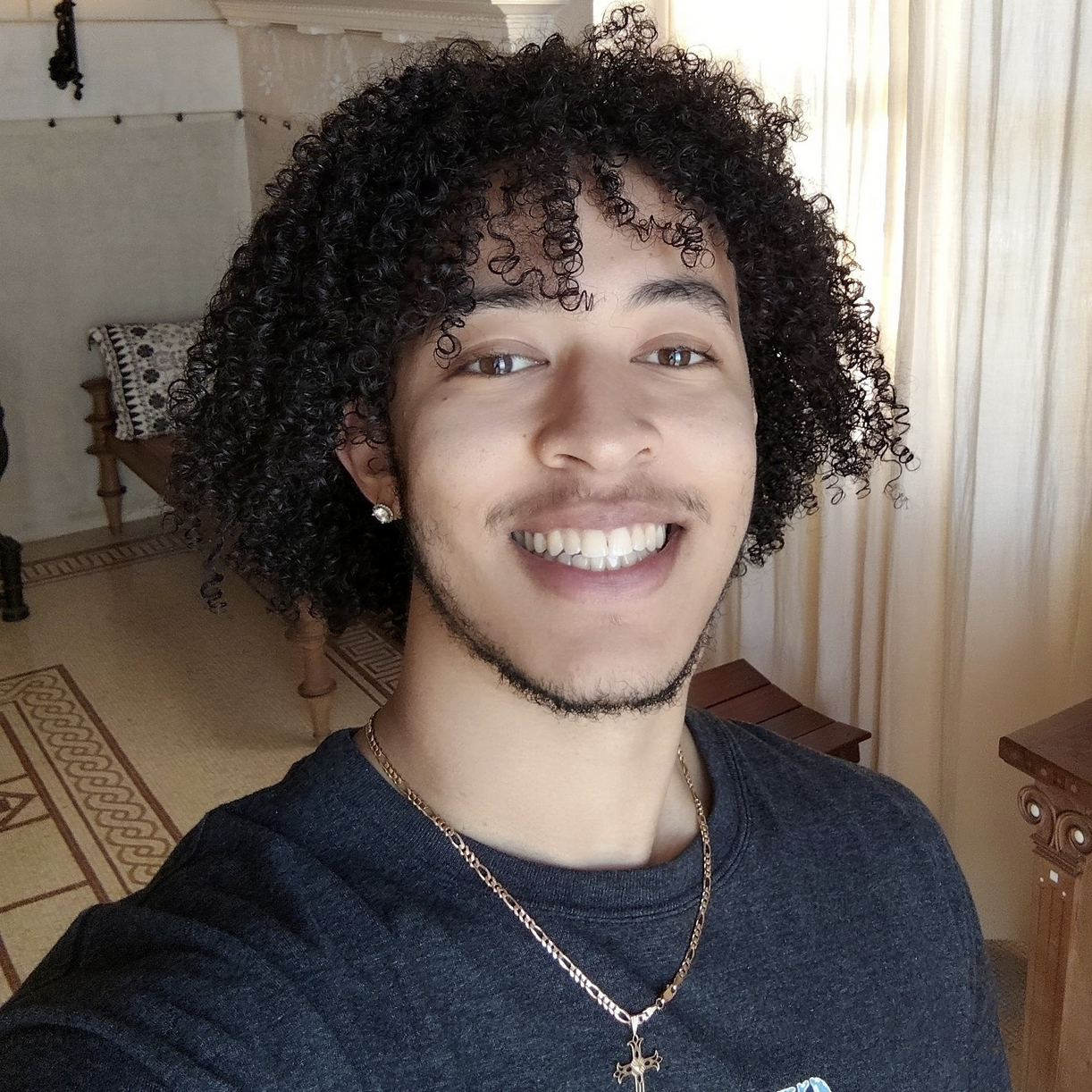
After many x-rays, appointments, and an MRI, I received the official news that my ACL was completely torn, along with my lateral meniscus. It sucked. I was really looking forward to dedicating a lot of my time to soccer this summer. That had been my plan—I wanted to be ready to play for a team this upcoming season. Now it is difficult for me to even walk or bend my knee to tie my shoes. Daily activities that I used to complete without much thought have become small battles I consistently face. It seems as if all the things I want to do the most, are off limits for fear of injuring myself worse. Being active is one of the things I love the most whether it be playing sports, jumping, swimming, sprinting, or biking.
Although it has been challenging, throughout this unexpected time I have not been alone. I’ve received support from my friends, family, supervisors, and coworkers—and Christina Lorete, Chris Starr, and Andy Obringer at the gym have been truly amazing. Everyone has helped me in so many ways whether it be prayers, words of encouragement, going out to eat, providing me with new exercises, or watching big soccer matches with me. The ultimate strength that is helping me persevere through this, is my Lord and Savior Jesus Christ. I am just trusting in him and what he has planned for me, he provides me with a great sense of peace. Since being injured I have been able to focus on reading new books and I have had time for writing songs. This experience has been such a learning curve for me and I have been able to connect with so many more people on a deeper level than before. I just want to say thank you to everyone who has helped me throughout this time!
Hunter Lau ‘28
86% of CC students feel they are competent and capable in the activities that are important to them
When we typically think of bullying, your mind might go to your 90’s jock, slamming kids into lockers and yelling at them to fork up their lunch money. However, bullying can come in all shapes and sizes, and sometimes you don’t even realize what’s happening until you're too deep into it.
When I was in my senior year of high school, I decided to join my school’s Concert Glee Choir. Now, performing arts in general was a big deal at my high school, but especially choir. When you go to a school with a mandatory Founder’s Day mass and annual Song Contest where the entire grade performs in four-part harmonies, music is very important. I was already the new kid in one of the most elite Hawaiian schools so I already started off at a bit of a disadvantage, but I figured I enjoyed music a lot and I deserved a chance as much as anyone else to audition for the choir.
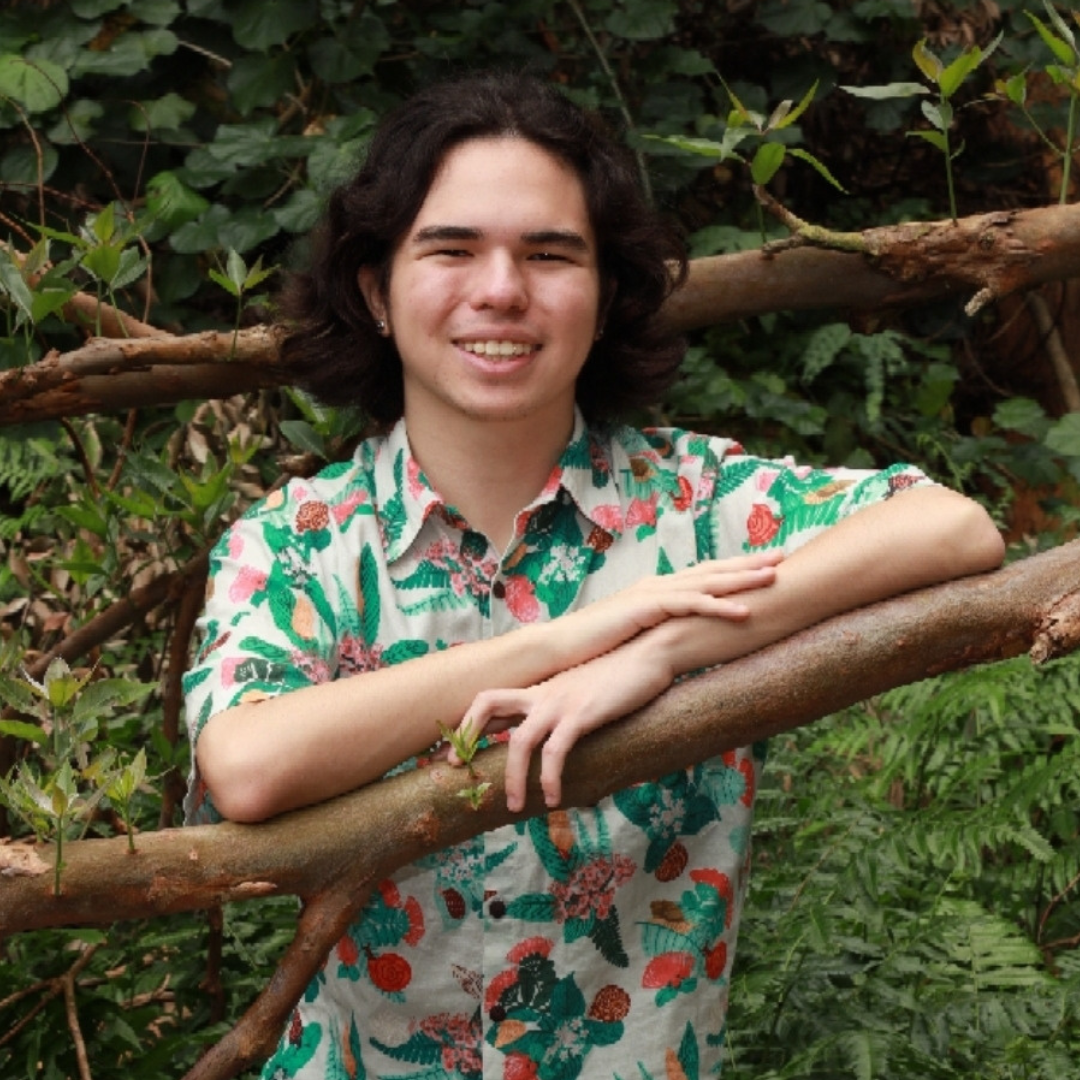
After I crushed my audition and started rehearsals my integration with the rest of my peers was slow. If igured I was still a relative nobody, and plus it’s out of the ordinary for a senior to be new to choir, I just had to give it a few days and I’d fit right in with everyone else. And then days turned into weeks. Into months. And so on. By December, I’d practically accepted my fate and was okay with it. I was not one of them, they did not want me to be one of them, it was alright. I didn’t figure anything was “wrong” or out of malice, just that I was a very different person and didn’t click well with them. I still had confidence in myself that I was still a good singer. I had friends elsewhere. Everything was fine.
One day, however, I received a text from my friend during the middle of lunch. For the sake of privacy, these are not their real names, but the text read as, “idk if you care but john, joe, and jim were talking about you”. Come to find out through more conversation, they were all insulting me behind my back, stating how bad of a singer I was, and how they were surprised that I was let into this school in the first place. The second major event I will share came from our spring school fair, or Hoʻolauleʻa, as it’s known as. As the choir students, we were all required to do a short little 10-minute set of music just as a fun performance throughout the day. Now although most people went in groups or duos, due to my social standing not only was I the only person singing by themself, I was also the very first person up. And I saw my fellow peers pulling up a chair right by the stage, all with that cunning grin where they weren’t going to straight up heckle me, but they were ready to see me crash and burn.
At that moment, a chill went down my spine. Fearing maybe I will give them exactly what they wanted. However, a second thought came to me: Why do I care so much about what they think? I decided to shift my mindset, I am not performing for them, I’m performing for myself. If they wanted to see me give a big reaction at their torment, I was going to rise above them and show how little their thoughts affected me.
Did this improve my social standing in choir, or even in school at all? Absolutely not. However, my friend told me that she saw how angry they all were after my fantastic performance. It’s a bit of a bittersweet ending. I never did get to fit in with that group of people. But it made me realize how I didn’t need that group of people in the first place. I am not going to spend time with people that enjoy comparing each other and putting others down. And luckily that is a lesson I’ve continued to keep with me everywhere in life.
Juan Miguel Arias
86% of CC students feel they are competent and capable in the activities that are important to them
80% of CC students believe they lead a purposeful and meaningful life
I was in the third year of my doctoral program, and I was drowning. On paper, things were great: researching executive functions in young children, taking advanced methods seminars, and leading a mentorship initiative. But under the surface, I was struggling with coursework, apologizing weekly to my advisors, and feeling—for the first time in years—like I couldn’t meet expectations.
Eventually, I uncovered a scarier reality: I was also struggling with my work because I was losing my sense of integrity and purpose.
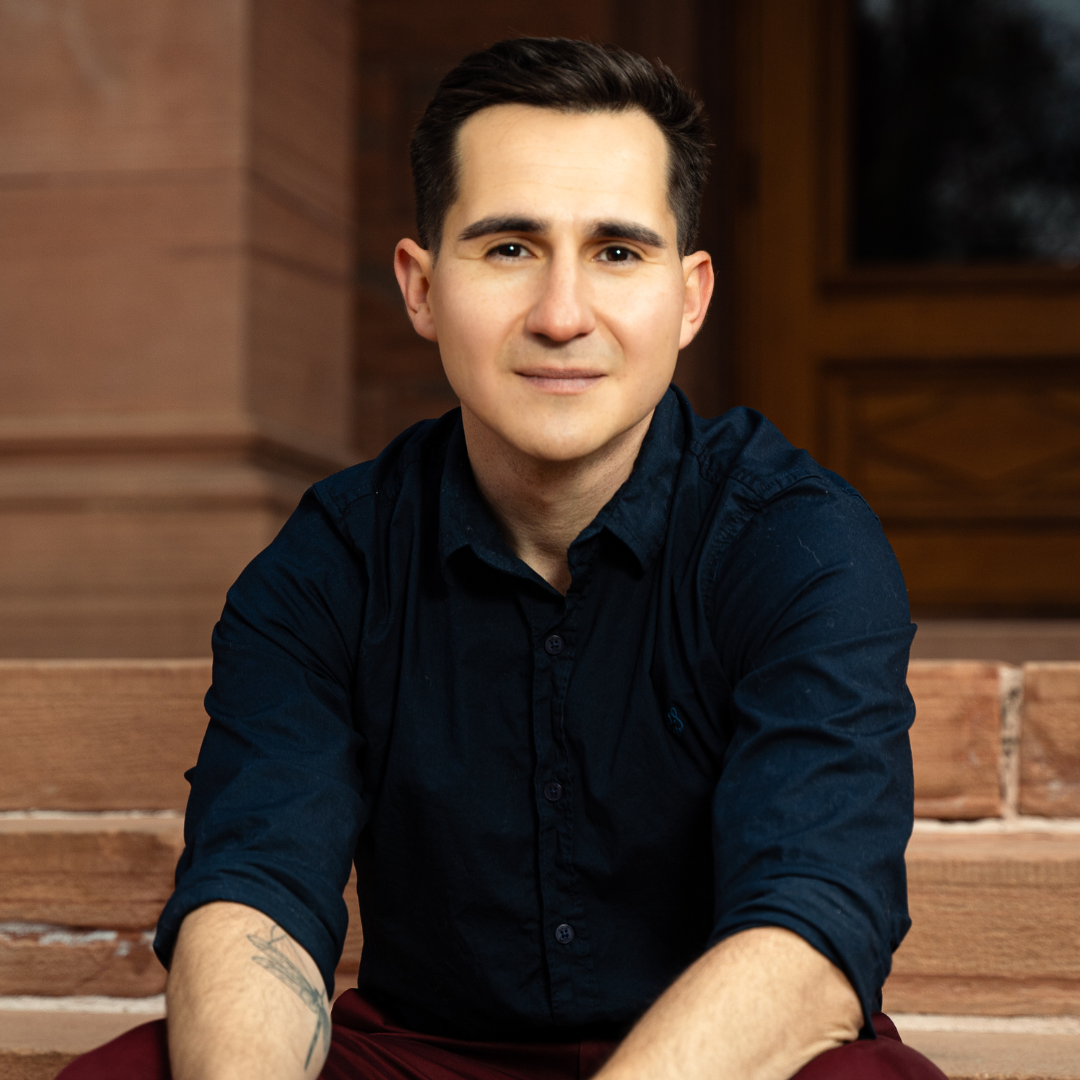
Some courses were training me in empirical psychological methods and educational interventions, and I sincerely wanted to learn these tools and use them to help others. Other courses, however, critiqued these same frameworks, showing how such research often framed academic struggles as individual “deficits,” shifting responsibility without improving big-picture conditions for students and the communities that nurtured them.
Caught between these worlds and wanting to do right by both, I wondered if my work was good enough to exist in either. More deeply, I wondered whether I was just perpetuating a harmful system for the sake of a clear, prestigious research path.
These tensions left me so unsure—and so unable to engage with my work—that I considered dropping out of graduate school.
What kept me grounded were my closest friends. They reminded me that my path was an open opportunity, not a prescription. They asked me: “What have you learned that’s worth sharing with the world? What do you want to do with your life, without expectations?”
My answer was easy: I wanted more kids and communities to reclaim their connection to place, time, and nature. I wanted education to center mindful learning, intentional living, and human thriving beyond screens and standardized tests—for all students, not just a privileged few. “That’s beautiful,” they said: “Go do it.”
I slowed down enough to really listen, and the rest, as they say, is history: I changed advisors, shifted my research to the psychology of environmental experiences, and found ways to align thoughtful methodologies with relational care in my work.
It wasn’t easy—It took another year and a half of graduate school (and a mid-pandemic dissertation)—but my decision was transformational. I learned that purpose doesn’t always come from constant success or certainty: sometimes it is in the moments when you question everything, reach out for help, and trust yourself to listen for the answers.
Amelia Walsh, ‘29
80% of CC students believe they lead a purposeful and meaningful life
The scent of Sol de Janeiro clings to me as I shuffle forward, hood pulled low over my head, surrounded by a sea of lululemon leggings and nike blazers. Ahead, I hear girls laughing and gossiping about their latest crushes and obsessions, while I drift quietly behind them, anxious and out of place. My baggy jeans and Mt. Joy T-shirt wrap around me, marking me as the one who doesn’t quite fit in. “You’re wearing that? Ew. Gross.” That was the daily reminder from others that I wasn’t “trendy enough,” “cool enough,” and “weird.” Each morning, I fantasized about impressing my friends, changing my outfits over and over to fit in slowly losing my own identity. What happened to me. Walking through the halls, I felt like I was in disguise. I didn’t feel cool like the others, I felt visible, but not seen. Not me. The more I tried to blend in, the more invisible I became to myself. I was being erased.
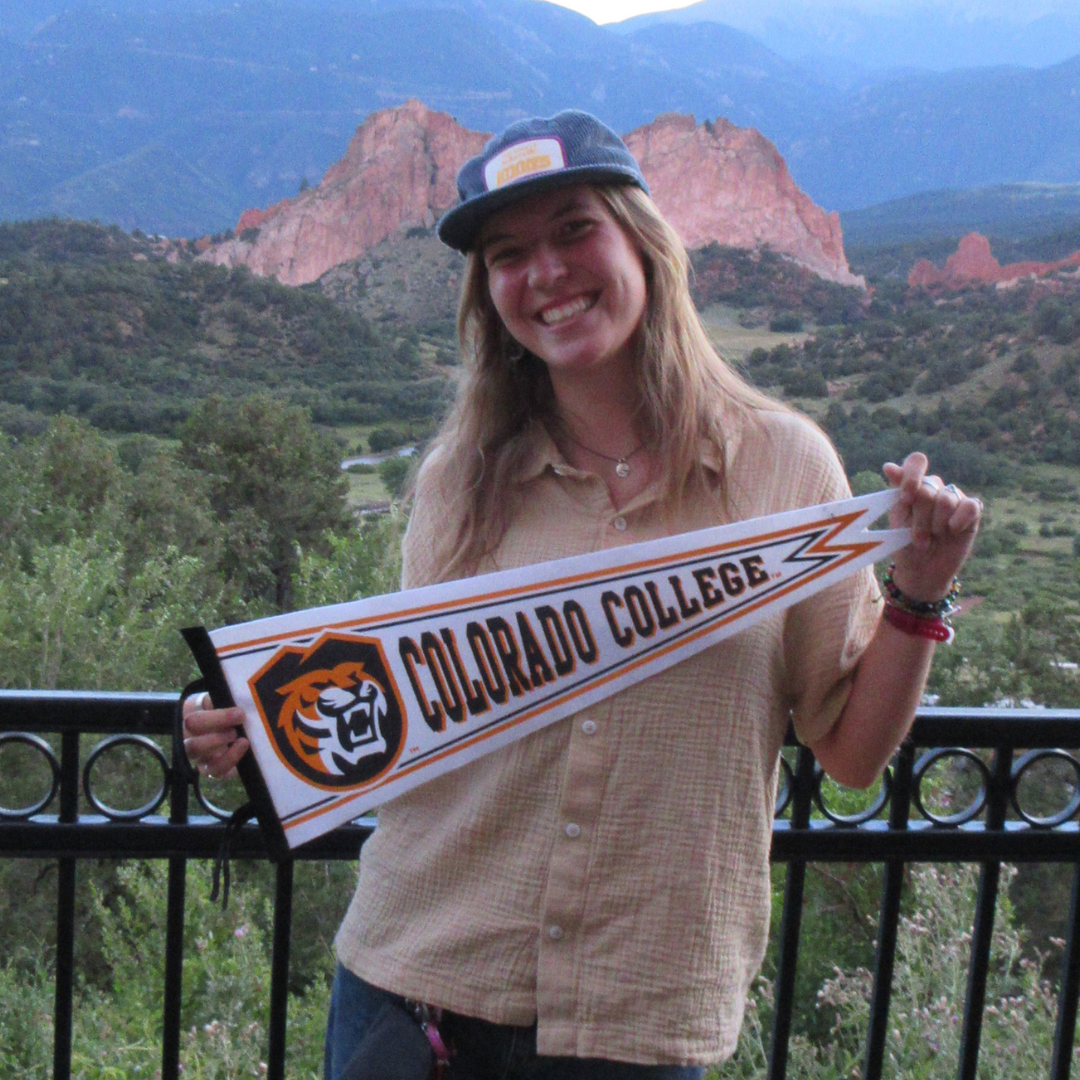
The relevance of self-expression isn’t about being seen by others, but about seeing yourself clearly. It’s easy to fall into the trap of dressing, speaking, or acting in ways that earn approval, thinking that validation equals value. True self-expression is not about putting on a show for others, but about reflecting who you are with honesty and clarity. When you choose what feels true to you, you’ll begin to understand yourself more deeply. You start to notice what brings you joy, what makes you feel powerful, what feels like home. That clarity is transformative. It’s not just about fashion or aesthetics; it’s about reclaiming your identity from the expectations of others. And in that reclamation, you find a quiet kind of relevance, one that doesn’t shout to be noticed but resonates deeply with those who are meant to see you. That shift, choosing to see myself, was the beginning of something incredible. I stopped dressing to be accepted and started dressing to discover. As I leaned into that truth, I began to attract people who saw me, not just my outfit. That’s when I realized that being yourself isn’t just brave, it’s magnetic. It’s how you find your people. The sacredness of self-expression lies in its honesty, in its refusal to be diluted. And once I embraced that, I didn’t just feel relevant, I felt whole.
Now I carry myself differently, not because I’ve changed to fit in, but because I’ve finally returned to who I am. I’ve rediscovered my own style, the one that feels natural and true rather than like a costume. My baggy jeans, my Mt. Joy tee, and even the scent of Sol de Janeiro when I wear it for myself are no longer attempts to blend in. They are expressions of my identity. I love being me. There is a quiet joy in choosing comfort over conformity and authenticity over approval. Self-expression brought me back to life, and through that honesty, I found connection, confidence, and clarity. Hiding no longer feels necessary. Honoring who I am has helped me find my voice, and that voice continues to guide me toward the people who truly see me. Just be you!
Julia Tilson, '29
71% of CC students say they tend to bounce back after illness, injury, or other hardships
I've had an interesting relationship with learning and my brain for as long as I can remember. Growing up attending a school for gifted children meant my overwhelming energy and constant distractibility set me apart from my focused counterparts. I was loud and loved to chat with my classmates and required more energy to keep me on track. I suppose I knew I was different in some way, given my teachers would make me run laps around the halls to get my energy out or would remind me to take extra snack breaks, but I never quite knew why. Even though I was smart and curious, my academic confidence was lacking. To many of my teachers I was a problem child, and I knew that.
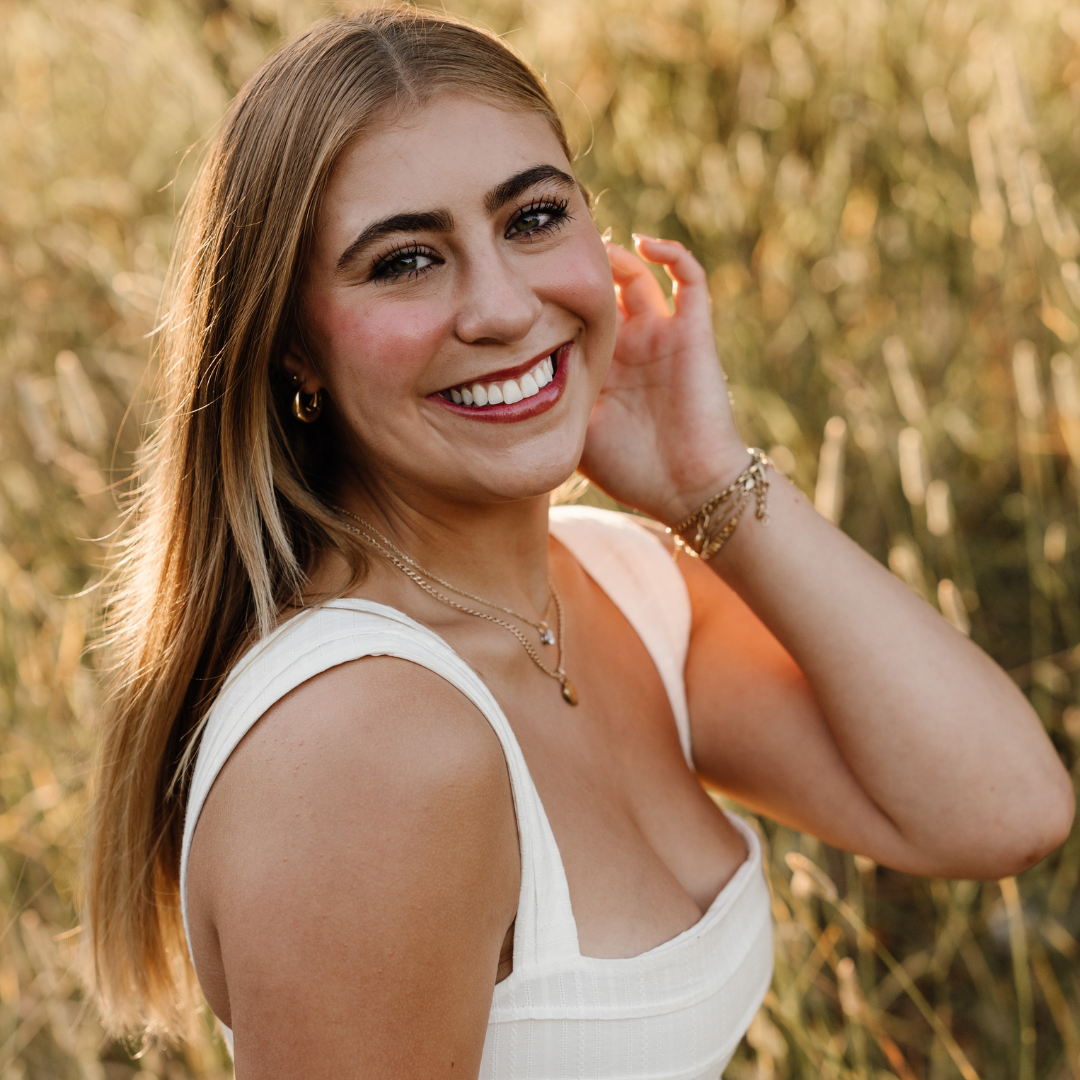
It didn't come until I was about 14 that my parents sat me down one day to inform me of my ADHD diagnosis. I was caught off guard and not sure what to make of this news. I was confused. When did I get this diagnosis? Why didn't they tell me before? It turns out I was diagnosed at the age of seven, as I had textbook ADHD symptoms and many of my teachers had recommended I see a psychiatrist for diagnosis.
Understandably, I was angry. I had been kept in the dark about something critical to my life and it wasn't fair. As I began to reckon with this new information, much of my life gained a new critical piece of context. So many things made sense now, like how it would take me longer to finish tasks, my procrastination, distracted tendencies, etc.
Then COVID happened and I took it upon myself to apply to boarding school and was accepted to Phillips Exeter Academy. I was certain that this was going to be the greatest thing that ever happened to me and I began my sophomore year. I quickly learned that my year would be a constant uphill battle. Many of my teachers didn't care about my success let alone my learning or what it meant for me to thrive. Regardless of how unhappy and unfulfilled I felt, I was determined to succeed, after all, this is what I had wanted so desperately and worked so hard to get.
I tried and tried, but no matter what I did I couldn’t achieve the results I wanted. I wasn't doing well in many of my classes, I had hollow bags under my eyes from getting four hours asleep every night, and I didn't have time to eat. I began taking ADHD meds in hope that would help, and the school psychiatrist put me on the highest dose possible, but my ‘problems’ in school persisted. Everything compounded, and I had my first panic attack - it was awful. But there was no time to waste, I had a bio test to get to. I walked right into that classroom, tears streaming down my face, still reeling and my teacher not so much as batted an eye, handed me my test, and that was that. The radiant, happy girl I once was so familiar with seeing in the mirror, had evaporated and left behind a shell of her former self.
I continued to try as hard as I could, and when my parents would call they would tell me I could come home anytime, that I didn't have to stay there. Being the stubborn girl I was, I never considered it. The year came to a close, my life barely holding together, but I was about to embark on a sea kayaking expedition in the Pacific Northwest I had spontaneously signed up for earlier that year. I went in with no expectations, and boy did those four weeks turn everything upside down. I finally had a second to catch my breath, reflect and truly consider who I was amidst the vast wilderness. Hours paddling along the coast made me contemplative and I began to shift my perception of what I was capable of and what was possible. I left that trip invigorated for the first time in so long and decided to take control of my story and leave the place that was no longer serving me.
Along my journey I learned what kind of community I valued, and who I wanted to become, and importantly what that also was not. Experiencing things I learned didn't align with my values led me to places that did, and for that I am eternally grateful.
Each CC Bounces Back story is paired with a social norm statistic from the National College Health Assessment of CC students taken in 2023 to highlight and normalize common feelings and experiences
74% of CC students agree that they are able to adapt when changes occur
71% of CC students say they tend to bounce back after illness, injury, or other hardships
86% of CC students feel they are competent and capable in the activities that are important to them
80% of CC students believe they lead a purposeful and meaningful life
89% of CC students have a strong support network
84% of CC student would consider seeking help from a mental health professional if they were having a personal problem that was really bothering them.
Over the past five years, only 1.2% of CC students graduated with a 4.0 GPA.
show all / hide all

